

Tao Te Ching
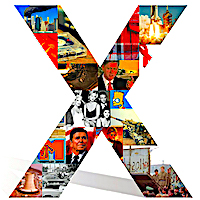
Generation X (1965 – 1980 CE)
Because the Baby Boomer Generation was so big, markets, advertising, politicians, and big business all gave it a disproportionate amount of attention, privilege, and status. Their children, Generation X, consequently grew up with material abundance but light on the sense of meaningfulness. They were the first generation to grow up with the unprecedented rate of change brought on by the explosions of new technology. Video stores rapidly expanded and even more quickly closed down. Rotary phones became digital, land lines became obsolete; cassette tapes became CDs, then DVDs, then digital; malls became irresistable attractions, then virtual, then antiquated; fax machines, answering machines, the Walkman, pagers… never had a generation gone from one “must have” object to another so frequently and in such rapid succession.
Unimpressed, cynical, pragmatic, ironic, and alienated; they pioneered slacking and—to some extent at least—found a middle ground between the traumatized-by-war “Greatest Generation” and the spoiled and self-indulgent “Baby Boomers.” They personified a rebellion against the rebels. Seeing through the prejudice and dogmatism of their grandparents as well as the idealism of their parents, this generation may be the closest to following the Wu Wei path of Lao Tzu. The last generation to grow up without a virtual internet jacked into their heads, the last not addicted to life-filling electronic illusions; it may be civilization’s last hope of salvaging personal and visceral human qualities in this age of artificial intelligence becoming the culture.
Sages (252)
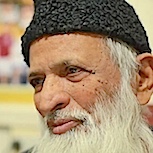
Abdul Sattar Edhi عبدالستار ایدھی
1928 – 2016 CE
Pakistan's "Father Teresa"
Called the “Father Teresa” of Pakistan, “Angel of Mercy,” and “the world's greatest living humanitarian;” Abdul Sattar Edhi was a philanthropist and social activist who dedicated his life to helping the poor. National hero and one of Pakistan’s most respected people, he established the world’s largest ambulance service and his country’s largest welfare organization that has trained 40,000+ nurses, rescued 20,000+ abandoned babies, operates orphanages, clinics, shelters, rehab centers for drug addicts and the mentally ill, and works in Africa, eastern Europe, the middle East and even the USA.
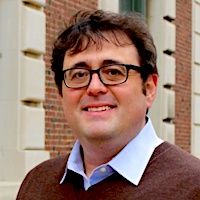
Adam Kirsch
1976 CE –
A poet, literary critic, and professor; Kirsch wrote—and continues to write—many books, articles and reviews. His articles quickly go beyond cliché and challenge second and third thoughts about status quo opinion. His numerous and insightful New Yorker articles quickly come up with online searches.
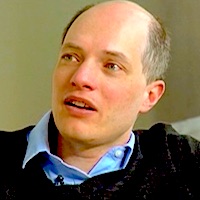
Alain de Botton
1969 CE –
Philosophic link between ancient wisdom and modern challenge
School of Life and Living Architecture co-founder, philosopher, public speaker, author, and ”Fellowship of Schopenhauer" winner; Alain de Botton makes major steps in linking philosophy to the practical concerns of everyday life. His many books, talks, and “School of Life” learning sessions help bring down the deep philosophical insights of ancient and modern thinkers into the practical realms of modern life. The School of Life—based in 11 different countries—provides an “emotional education” that challenges conventional universities by focusing on livelihood, relationships, and wisdom rather than only knowledge, by searching for meaningful life paths, and by expanding ways of evolving a greater cultural goodness. From a very wealthy but materialistic family, de Botton shuns a vast trust fund and lives only on his personal income.
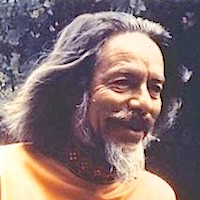
Alan Watts
1915 – 1973 CE
Episcopal priest become Buddhist, trickster, "philosophical entertainer,” counterculture hero, gifted speaker, and transducer to the West of Eastern philosophy; Watts wrote more than 25 books and in 1953 began a 9-year series of weekly radio broadcasts that continue being re-broadcast today. A friend and collaborator with Gary Snyder and Joseph Campbell, an inspiration for Robert Anton Wilson and Werner Erhard; Watts was criticized by teachers like Philip Kapleau, D. T. Suzuki, and Robert Baker Aitken but defended and described as a “great bodhisattva” by Shunryu Suzuki. Equating mystical experience with ecological awareness and Buddhism with psychotherapy, Watts became a bridge between culture and nature criticizing the modern view of “progress,” the idea of an absolute morality, and the ego-centricism preventing individual and international peace.
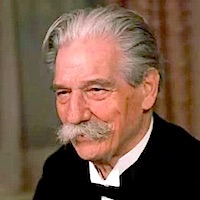
Albert Schweitzer
1875 – 1965 CE
An authentic Christian who didn't hesitate to criticize Christian extremism and hypocrisy, who genuinely practiced his faith by effective humanitarian work in Africa, and who realized a mystical and scientific union of individual and environment; Albert Schweitzer conveyed a deep reverence for all life and taught how destroying our environment is also destroys ourselves. Considered the greatest humanitarian of his day, he gave up a comfortable life as a professor and scholar to become a medical missionary in some of the world's most poverty-stricken places in Africa. After receiving the Nobel Peace Prize in 1952, he gave what many consider one of the best speeches ever given. His work against developing the atomic bomb, however, brought him under FBI/CIA scrutiny, public criticism, and the loss of financial support.
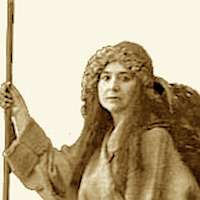
Alexandra David-Néel
1868 – 1969 CE
Author of over 30 books on Eastern religion, explorer, opera singer, and anarchist; Alexandra David-Néel became an important influence on the beat writers like Jack Kerouac and Allen Ginsberg as well as Eastern philosophy popularizers like Alan Watts. Only daughter of an exiled French political activist, she became serious about esoteric spiritual practices at an early age and by 15 was practicing austerities, fasting, and following the practices of ascetic saints. When 21, she became a Buddhist. A fearless explorer, she disguised herself as a beggar/monk, smeared her face with soot, and visited the highly forbidden city of Lhasa in 1924. Like Marco Polo, upon her return she became famous but unbelieved.

Allen Ginsberg
1926 – 1997 CE
Eloquent instigator, figurehead and voice for the Beat Generation of the ’50s, the counterculture of the 60’s and the flowering of Buddhism in America during the 70’s and 80’s; Ginsberg symbolized a powerful influence against materialism, the military-industrial complex, and conformity. His poem "Howl” written during a time when homosexuality was a crime in every U.S. state was confiscated by police, seized by US Customs, and started a famous obscenity trial that led to more legal and cultural acceptance for the LGBT community. For decades, a powerful advocate for free speech, gay rights, and non-conformity; a tireless opponent and protestor against the Viet Nam War, the War on Drugs, imperialism, the failure to protect refugees, and persecution of minorities; at the request of his Tibetan teacher Chögyam Trungpa and along with Anne Waldman started The Jack Kerouac School of Disembodied Poetics.
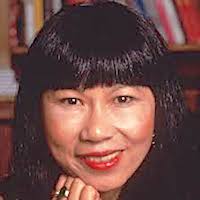
Amy Tan
1952 CE –
Rock and roll singer, bartender, and insightfully talented author
Rock and roll lead singer (in a band with Stephen King and Dave Barry), carhop, bartender, pizza maker, and insightfully talented author; Amy Tan has given the world memorable characters and a blended, wise view of world culture. A vivid example of how intense problems can transform into the evolution of goodness and wisdom, she had faced and transmuted challenges arising from a domineering, suicidal mother who once held a knife to her throat threatening to kill her, the murder of a college roommate, serious depression, and misdiagnosed Lyme disease that led to epileptic seizures. Exemplifying Einstein’s quote, “Great spirits have always encountered violent opposition from mediocre minds,” critics have accused her of perpetuating racial stereotypes, pandering to Western prejudices, and “casting Chinese men in the worst possible light.” If no negative reaction to a work of literature, it’s probably very insipid, meaningless, and not worth the time reading.
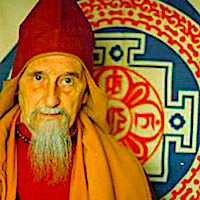
Anagarika (Lama) Govinda (Ernst Hoffmann)
1898 – 1985 CE
Pioneer of Tibetan Buddhism to the West
Poet, painter, and brave explorer of both our internal and external worlds; Lama Govinda—when only 16 years old—discovered Buddhism through the writings of Schoepenhauer. This led to a lifetime of traveling, discovering, practicing, and teaching Buddhism, and in particular, Tibetan Buddhism. An early Western initiate into Tibetan Buddhism, he traveled there in 1932 and became ordained in 1933. His writings and teachings became seminal for Tibetan Buddhism's entry into the west. Robert Thurman described him as, "one of the West's greatest minds of the 20th century. He believed he was a reincarnation of Novalis and died laughing.
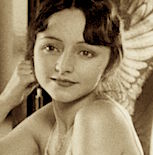
Anais Nin
1903 – 1977 CE
A writer since 11 years old and after sharing a bohemian lifestyle with Henry Miller in Paris while she was married to her first husband; she married her second husband while still married to the first. A radical feminist long before it became popular, her renown grew quickly during the 1960’s feminist movement. With a “degree in erotic lore,” she was the first well-known woman in the West to write erotica and is widely considered the best at it although she began writing it as a joke without intention to print. Close friend and in some cases lover to many of the main literary figures of her day including Henry Miller, John Steinbeck, and, Gore Vidal; Nin bravely looked deeper than the thin shell of politically correct, respectability, and status quo.
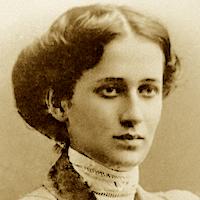
Anna Akhmatova Анна Ахматова (Andreyevna Gorenko)
1889 – 1966 CE
Russia's most loved female poet
One of the most famous Russian poets, strikingly original and courageous critic, powerful and legendary Russian heroine; Anna Akhmatova's chose to remain in her country rather emigrate when her work was condemned by Stalinist censors, her first husband was killed by Soviet secret police, and her son and common-law husband were thrown into the Gulag. During this time her poetry was circulated on scraps of paper that were read once and then immediately burned.
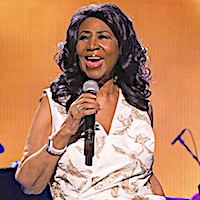
Aretha Franklin
1942 – 2018 CE
“Greatest Singer of All Time”
Dominant spirit of American music, Rolling Stone’s “Greatest Singer of All Time,” Queen of Soul, 1st Rock & Roll Hall of Fame woman singer, powerful and influential voice for Equal Rights and Social justice; Aretha Franklin’s legacy runs deep in both American and World culture. Beginning with her 1st album when only 14 years old, she went on to record 112 charted songs, 18 Grammys, and 17 top ten singles. Growing up and helping her famous father, mesmerizing preacher Rev. C.L. Franklin who recorded dozens of inspiring sermons treasured by blacks and creative spirits across the country, she knew and supported Martin Luther King from an early age. With a challenging life including having her first child when only 12 years old, her second when 14, a marriage filled with domestic violence, and her father being shot in his home at point blank range; her soul-empowering suffering continued in struggles with alcoholism, obesity, and various health issues. Not letting her tribulations stop her, she continued to spread her inspiration and was honored with degrees from Harvard, Princeton, Yale, Brown, and many other universities.
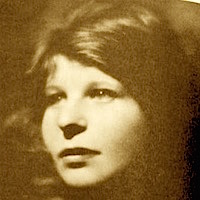
Ariel Durant (Chaya Kaufman)
1898 – 1981 CE
Brilliant conversationalist, champion of women’s rights, student, lover, wife, muse, and equal to Will Durant; Ariel emigrated with her mother to America from the Ukraine when 3 and grew up on the New York streets learning to fight and take care of herself. Will married her when she was 15 and he was 28 and her teacher. They spent the next 68 years together on an intellectual, contemplative, and literary journey writing The Story of Civilization and many other books and articles. Named "Woman of the Year,” she shared a Pulitzer Prize and the Presidential Medal of Freedom with her husband. Constantly introducing him to radical artists, poets, and free-spirits from Greenwich Village to Woodstock, she balanced Will’s pedantic, scholastic personality with love-of-life adventurism. Although running away several times during the early days of their marriage, they came to represent the depths of close relationship, the joining of the two halves of the complete being described by Plato, and the possibilities for marriage.
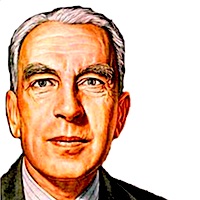
Arnold Toynbee
1889 – 1975 CE
Philosopher of history, international affairs expert, research professor, and prolific author; Toynbee was the the world’s most translated, read, and discussed scholar for much of the 20th century. He wrote hundreds of books and articles translated into more than 30 languages. Applying his insights from studying history to modern political problems, he became a delegate to the 1919 Paris Peace Conference, worked in the British Foreign Intelligence Office, and held a long-term position at the London School of Economics. His historical studies led to persuasive theories about how civilizations arise as a response to extreme challenges by "creative minorities" and how these solutions change the course of cultural evolution. Believing that civilizations most often die from suicide rather than invasion or natural causes, he describes the process of how civil-success leads the people and leaders to a kind of complacency full of nationalism, militarism, and oppressive tyranny.
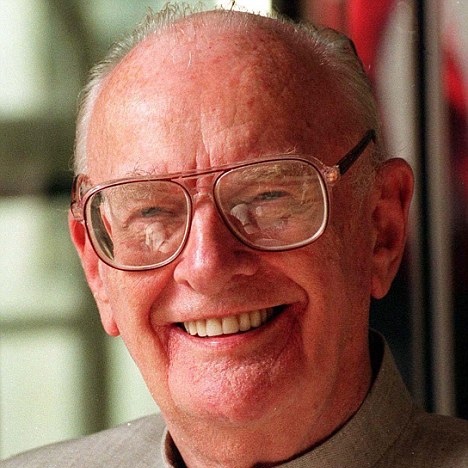
Arthur C. Clarke
1917 – 2008 CE
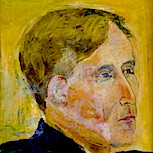
Arthur Waley
1899 – 1969 CE
East to West ambassador, remarkable Chinese and Japanese translator called a "great transmitter of the high literary cultures of China and Japan,” sinologist, and poet in his own right; Waley’s poetic translations based on understanding not just the words but the sense as well, pioneered a new understanding and appreciation of oriental philosophy in the west. His Tao Te Ching translation, The Way and Its Power is one of the best older version translations with clear and insightful commentaries.
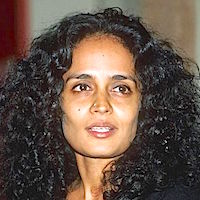
Arundhati Roy
1961 CE –
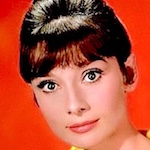
Audrey Hepburn
1929 – 1993 CE
She wasn’t that beautiful really, not sexy, an okay actress but not exceptional; what made Audrey Hepburn so popular was her deep goodness as a person. A wise and thoughtful humanitarian, she was active in the Dutch resistance during World War II, nominated for 7 Academy Awards, won twice and is one of only a few people who won Academy, Emmy, Grammy, and Tony Awards. She became the Goodwill Ambassador of UNICEF and devoted years working in some of the poorest communities of Africa, South America and Asia. Her movies continue to uplift, inspire, and improve the lives of millions of people.
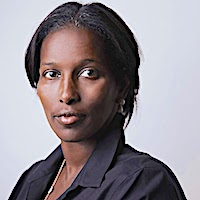
Ayaan Hirsi Ali
1969 CE –
Powerful voice for Islamic reform
Politician, scholar, powerful and effective voice advocating Islamic reform and the rights of Muslim women; Ayaan Hirsi Ali skillfully opposes the far-too-common practices of forced and child marriage, genital mutilation, and violence against women. After growing up as a devout Muslim, she abandoned her faith and became an insightful critic of Islam and the fundamentalist Islamic laws that oppress women. Her movie Submission precipitated an intense reaction of criticism, death threats, and the murder of her co-filmmaker. Both exemplifying and calling for an Islamic Enlightenment, she exposes the deep and debilitating oppression ingrained in Muslim culture and religion as well as articulating and demonstrating a path toward positive reform.
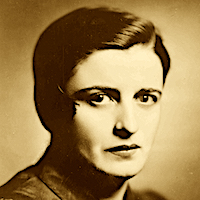
Ayn Rand (Alisa Zinovyevna Rosenbaum)
1905 – 1982 CE
, (1905–)
Tea-Party saint
American conservative, libertarian, and Tea-Party saint; Ayn Rand ridiculed altruism, praised selfishness, and promoted personal and national egoism. She championed laissez-faire capitalism and helped firmly establish a philosophical foundation for raising the 1% richest to unimaginable heights of prosperity, decadence, and materialism. Her book Atlas Shrugged—which became a conservative Bible—described the most rich, wealthy, and powerful ("the 1%") as victims of welfare-surviving children and social programs like social security, unemployment insurance, and medicare.
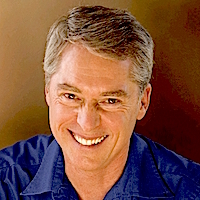
B. Alan Wallace (Bruce Alan Wallace)
1950 CE –
Translator, Tibetan Buddhist scholar, professor, and consciousness-studying scientist; Alan Wallace blended his 14 years as a monk and ordination by the 14th Dalai Lama with his scientific, research projects into understanding the nature of mind. He’s written 19+ books, many articles and papers, and translated innumerable Buddhist scriptures into understandable modern texts. However, his inclinations tend to gravitate more toward the words than the sense, the belief rather than the personal experience.
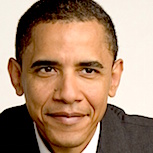
Barack Obama
1961 CE –
Winner of honors ranging from the Grammy Awards to the Nobel Peace Prize; Obama is the first African American US President, the first sitting president to visit Hiroshima, and first to address the African Union. In spite of single-minded and almost exclusive focus on opposing him by House and Senate Republicans, his accomplishments rival almost any American president. Beginning with one of the most dire financial crises in US history; he turned the economy around, greatly improved foreign relations, passed the Affordable Care Act, killed Osama bin Laden, reigned in Wall Street, restored relations with Cuba and made progress on fighting climate change, prejudice, workplace abuse, and gun control.
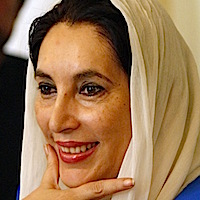
Benazir Bhutto بينظير ڀُٽو;
1953 – 2007 CE
“Iron Lady,” 11th Prime Minister of Pakistan, first woman to head a Muslim majority nation; Benazir Bhutto studied at Harvard in the USA and Oxford in the UK, became a symbol of women's empowerment in Islamic countries as well as a small but bright light shining on the possibility of peace between Islam and the West, democracy in Muslim countries, and the ending of Islamic extremism. Assassinated but now honored by the Pakistani government, her legacy includes almost all Pakistani political parties allowing women full participation in their organizations and elections, support programs for the poorest Pakistanis, and inspiration for young activists like Malala Yousafzai.

Bertrand Russell
1872 – 1970 CE
“20th century Voltaire”
Bertrand Russell (1872 - 1970)
Nobel laureate for championing “humanitarian ideals and freedom of thought,” famous logician, polymath, historian, writer, and social critic; Russell promoted a world government and a "scientific society.” From one of the UK’s most prominent aristocratic families, he dedicated his life to political and social activism trying to abolish war, poverty, prejudice, and imperialism. A prominent anti-war activist, he went to prison during World War I. In his early 70’s he recreated himself; continued a strong, active and relevant life being arrested and jailed for 7 days because of an anti-nuke protest when he was 89; and persevered using his considerable political influence up until days before he died at 97. A major influence on the development of computer science and artificial intelligence, he worked for nuclear disarmament, gay rights, and world peace.
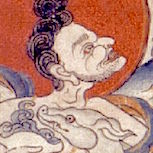
Bhikṣanapa བྷི་ཀྵ་ན་པ། ("Siddha Two-Teeth")
940 CE –
Mahasiddha #61
Bhikshanapa བྷི་ཀྵ་ན་པ། “Siddha Two-Teeth” (10th century CE)
Low caste and very poor, Bhikshanapa unexpectedly inherited some wealth. Like most people today winning a lottery or inheriting unaccustomed riches, he quickly lost it all along with his fair-weather friends. This led to a period of intense self-loathing and depression but also an openness to meeting and hearing a teacher and new way of experiencing the world. Seeing through his consumerism andspiritual materialism, he metaphorically (and possibly physically too), lost all but two of his teeth which became symbols for the balance and harmony of wisdom and skillful means. Resuming his external life style of roaming from village to village, he transformed from a miserable, needy beggar only thinking about himself into a wonderful teacher constantly dedicated to helping others. Mahasiddha #61
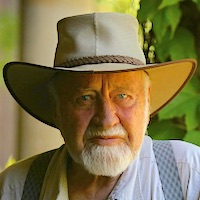
Bill Mollison
1928 – 2016 CE
Permaculture's Founder-Father
Scientist, professor, ecologist, global gardener, and tenacious opponent of environmental profiteering; Bill Mollison designed and developed sustainable agriculture projects all over the world; even in the most challenging Equatorial and Arctic environments. For more than 40 years, he worked with groups as diverse as US urban farmers to African tribal women; Pacific islanders to Native Americans; European backyard gardeners to seven different Amazonian language groups. He championed the idea of more gardening as the foundation for more just, egalitarian, and peaceful societies. He questioned both the motivations and effectiveness of revolutionaries and political insurgents who "depend on the very system they attack."

Bob Dylan
1941 CE –
Though thought of in many different ways by different people, at heart, Bob Dylan may most essentially represent a modern-day Taoist sage, a continuation of Lao Tzu’s lineage. Awarded the Nobel Prize for Literature in 2016 and called the “Shakespeare of his generation,” he wrote over 500 songs recorded by more than 2000 singers and sold tens of millions of albums. Though world famous for decades and beyond “successful” in numerous ways, his humility and refusal to make a big deal out of himself remains. His music and message transcends his voice and culture. As relevant today as it was in the 60’s, it continues as a major influence on our cultural conscience and consciousness. And this influence shows all signs of continuing far into the future.
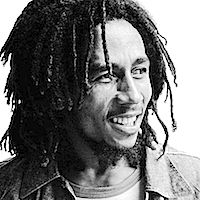
Bob Marley
1945 – 1981 CE
International hero of indigenous communities, one of the greatest song lyricists of all time, Rastafarian, father of at least 11 children with 7 mothers including Miss World Cindy Breakspeare, soccer crusader, and Pan-Africanist; Marley - in the lineage of Che Guevara, the Black Panthers, and Muhammad Ali - promoted political freedom, peace and justice. His song ”One Love" was named song of the millennium by the BBC: and, with sales of over 75 million records, he ranks as one of the world's best-selling artists. He used his spiritually infused music, global popularity, and concerts attended by up to 100,000 people to celescalate independence and justice for minorities, political focus on doing good instead of special interests, and marijuana as a sacrament, spiritual medicine, and catalyst for more wisdom. Awarded the Peace Medal of the Third World from the United Nations, at his funeral the Jamaican Prime Minister said, “Such a man cannot be erased from the mind. He is part of the collective consciousness of our nation” (and now of the world).
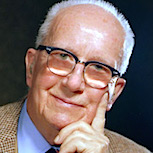
Buckminster Fuller
1895 – 1983 CE
“One of the greatest minds of our times," pioneering solution-solver doing "more with less,” poet, engineering and inventor-genius with 25 patents; Bucky developed a comprehensive and practical perspective on ways to solve world problems. Expelled from Harvard in 1913 and also in 1915 (he later received 47 honorary doctorate degrees) and on the verge of suicide in 1927 when his construction company failed, he went into a 2-year reclusive retreat emerging as one of our greatest global thinkers. His inventions include a winch to rescue boats, a way to better produce concrete buildings, the World Game, the Dymaxion™ house, car, bathroom, grain bin, and many as well as the geodesic dome with now more than 300,000 in use everywhere from African villages to remote radar stations to children’s playgrounds. Advocate of "a one-town world,” seeing ourselves on "spaceship earth,” and the world as one living system; he inspired tens of thousands of sustainability pioneers.
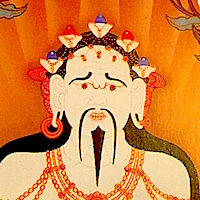
Campaka ཙ་མྤ་ཀ (“The Flower King”)
820 CE –
Mahasiddha #60
Extremely wealthy, powerful, caught up in pleasure, and sitting on a throne made from sweet-smelling flowers; Kampala met a wandering yogi. He tried to impress the sage with the splendors of his kingdom and the beauty of his flowers but the sage told him the truth, that his flowers smelled great but his body not so much, that his realm was wonderful but before long it and he would be gone. Realizing the superficiality and meaninglessness of his life, Kampala began a spiritual path but only shifted his physical materialism into spiritual materialism. Directed to focus his meditation on “the flower of pure reality,” he practiced and finally realized the empty essence of his mind. Mahasiddha #60
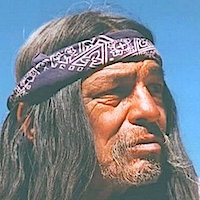
Carlos Castaneda
1925 – 1998 CE
An anthropology graduate student from Peru going to UCLA, Castaneda's first two books were dissertations for degrees and the first one ended with lots of academic jargon which he soon apologized about. His 12 books took on an increasingly symbolic tone and the reception changed from historical belief to conviction that they were complete fiction. This perception did little to decrease their popularity and they sold more than 28 million copies and were translated into 17 languages. Factual or not, they inspired a different way of looking at culture, value systems, and perception - one in harmony with our wisdom beyond words theme.
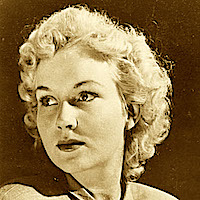
Carolyn Cassady
1923 – 2013 CE
Formal artist at 9 years old selling her first painting at 14, award winning set designer and head of make-up at 16, author, “grande dame of the Beat Generation,” founding member of the Academy of Parapsychology and Medicine, mother of 3 Neal Cassady children, and Jack Keroac love partner; Carolyn Cassady later regretted but divorced Neal launching him into further travels with Ken Kesey's band of Merry Pranksters (described in Electric Koolaid Acid Test) and his death in Mexico. Student of Erich Fromm, Dane Rudhyar, Edgar Cayce, and Peter Drucker; symbol in On the Road for integrity and goodness; muse for and character in the writings of Kerouac, Tom Wolfe, John Clellon Holmes, and Ken Kesey; portrayed by Kirsten Dunst and Sissy Spacek in movies; she took care of their children by herself when Neal spent 2 years in jail for a tiny amount of marijuana and worked to prevent young people from following in the self-destructive, Beat-imitating misunderstandings.
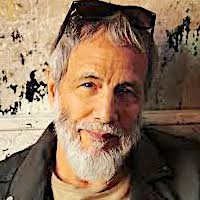
Cat Stevens (Steven Demetre Georgiou, Yusuf Islam)
1948 CE –
Singer-songwriter, musician, humanitarian, and brave artist dedicated to principle over fame and fortune; Cat Stevens had a Greek Orthodox father, a Baptist mother, went to a Catholic school, wrote an album based on a famous Zen teaching, converted to Islam and abandoned his musical career for 30 years. He used his music-derived wealth to promote Muslim philanthropic and educational causes and continues to help famine victims in Africa and thousands of orphans and families in the Balkans, Indonesia, and Iraq. Although always condemning terrorism and Islamic extremism, he was deported by Israel and ironically after the 9/11 attacks while on a tour with Dolly Parton promoting the song Peace Train; he was put on a US No-Fly list, briefly detained, and forced to fly back to the UK. Today he still continues his musical, philanthropic, and peace-making work.
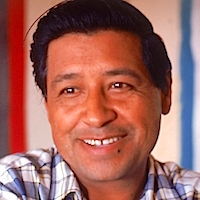
César Chavez César Estrada Chávez (César Estrada Chávez)
1927 – 1993 CE
Iconic "folk saint,” Mexican-American farm laborer, civil rights activist, grass roots organizer, co-founder of the the United Farm Workers union; Cesar Chavez used nonviolent but spirited methods to further the rights and living standards of farm workers. Nominated 3 times for the Nobel Peace Prize, given the Presidential Medal of Freedom, and inducted into the California Hall of Fame; he promoted and practiced non-violence, vegetarianism, and Hispanic empowerment helping to establish collective bargaining for farmworkers.
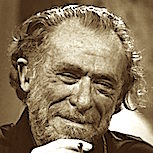
Charles Bukowski
1920 – 1994 CE
"Laureate of American lowlife”
Called "laureate of American lowlife,” “the original Big Lebowski,” “pulp-fiction hero,” and “king of the underground;” Bukowski wrote over 60 books, thousands of poems, hundreds of short stories, and was the writer behind Robert Crumb’s famous comics. Icon of the Los Angeles cultural life of his time, lover of alcohol, affairs, and outrageous creativity; he became the epitome and symbol of the anti-social, utterly free, and uninhibited bachelor. An intensely captivating and mesmerizing figure, his life and story show up in film personalities including Jean-Luc Godard, Ben Gazzara, Mickey Rourke, Faye Dunaway, Sean Penn, Dennis Hopper, Bono, Tom Waits, Julianne Moore, Jeff Bridges, Matt Dillon, and many more.
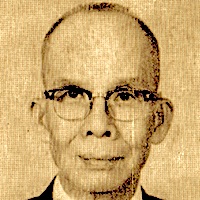
Charles Luk 陆宽昱
1898 – 1978 CE
Upāsaka, translator, disciple of Tibetan Vajrayana,Taoist and Chán meditation masters; Charles Luk began translating famous Chinese texts into English before most people in the West had had even heard of these traditions. He translated Buddhist Sutras, important books on Daoist Neidan meditation, and wrote many commentaries and biographies.
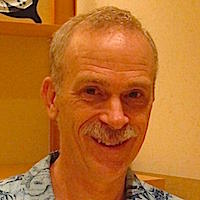
Charles Muller
1953 CE –
Tao Te Ching translator, American professor at a Japanese university, founder of an online Buddhist digital dictionary, Karate adept and an early pioneer in developing digital Buddhist resources with a focus on the Korean and Yogacara approaches; Muller also includes theological, Daoist, Confucian, Indian Buddhist and Zen approaches to his work. A strong influence in the field of Digital Humanities, his online publications include bibliographies, translations, reference works, and lexicons and his research extends into the fields of psychology, political and cognitive science.
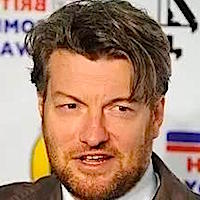
Charlie Brooker
1971 CE –
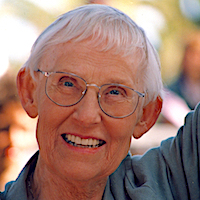
Charlotte Joko Beck
1917 – 2011 CE
Authentic, pioneering Western Zen master
Piano teacher, secretary, mother of four, and one of the first Western Zen teachers; Charlotte Joko Beck didn't begin Buddhist practice until her 40's but it quickly became her life. Her first teacher was Taizan Maezumi Roshi but she left him amid scandals involved with him sleeping with students. She also studied with Hakuun Yasutani and Soen Nakagawa. She emphasized the synergy between Buddhism and psychology as well as the practical, emotional reality of our lives. She stopped shaving her head and wearing robes, and helped American Zen evolve beyond the walls of Japanese culture.
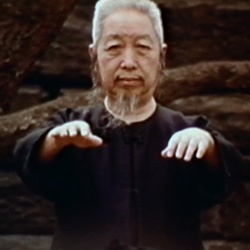
Cheng Man-ch'ing
1902 – 1975 CE
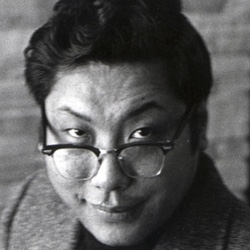
Chögyam Trungpa
1939 – 1987 CE
A once-in-a-generation kind of teacher, a mahasiddha for our times, a transducer transforming ancient wisdom into modern idiom. Per Allen Ginsberg, “A Renaissance man of the highest peaks of East, meditation emperor, space awareness Dance-master, witty rude calligrapher whose poetry and flower arrangements unite the Mind with Body… Prime Minister of Imagination… Chairman of the Board of Directors of Ordinary Mind.” Meditation master, scholar, teacher, poet, artist, he was honored as a mahasiddha by teachers like Khyentse Rinpoche and the 16th Karmapa. “The father of Tibetan Buddhism in the US,” his influence was and remains beyond words.
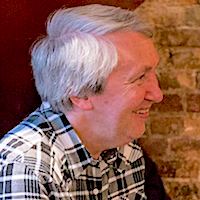
Clinton Heylin
1960 CE –
Prolific English author focused on Bob Dylan and popular music in general.
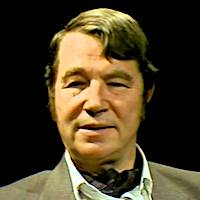
Colin Wilson
1931 – 2013 CE
Author of over 100 books, philosopher, novelist, and instigator of “optimistic existentialism;” Wilson wrote The Outsider in 1956 when he was only 24 years old and—translated into 30+ languages—it hasn’t been out of print since. A deep interest in metaphysical themes led him to in-depth studies and writings on people like Aleister Crowley, Gurdjieff, Helena Blavatsky, Paracelsus, Carl Jung, Wilhelm Reich, Rudolf Steiner, and P. D. Ouspensky. His challenging and ground-breaking reflections spawned an International Conference that began in 2016. Dissolving most boundaries of conformity, he brought an extremely open-minded and non-conformist views on most modern issues; but, went so far in that direction, he often fell into believing naive and primitive speculations. In spite of—or possibly because of—these “failings,” his books challenge conventionality and open conceptual, panoramic perspectives on the most important issues we struggle with on political, social, and personal levels.
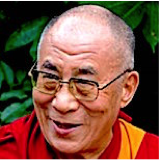
Dalai Lama XIV Tenzin Gyatso
1935 CE –
Born to a remote small farming family on a straw mat in a cowshed, the Dalai Lama became the world’s most popular political leader. He received the Nobel Peace Prize, the highest US honor of Congressional Gold Medal, the Freedom Medal, and is one of only 6 people given Honorary Citizenship by the Canadian government. Traveling the world for decades, he became the most famous voice for the environment, women's rights, non-violence, fair economics, and interfaith dialogue as well as the world’s main influence for the preservation of Tibetan culture. Promoting a Buddhist approach to science, economics, and politics; he has traveled to more than 67 countries and written more than 110 books.
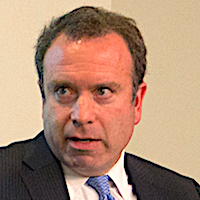
Dana Milbank
1968 CE –
Author, and Washington Post columnist
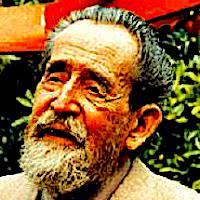
Dane Rudhyar ( Daniel Chennevière)
1895 – 1985 CE
Agent of cultural evolution
Modernist composer, transcendental artist, science fiction writer, philosopher, and founder of transpersonal astrology; Rudhyar thought of himself as a “seed” spreading a new era of cultural evolution. Prolifically creative his entire life, scholars consider his most fruitful period beginning when he was 74. During the next 10 years, he published several books a year including many insightful works on planetary consciousness. After performing one of the first original polytonal orchestral pieces in the United States, he met a Zen teacher and began studying Eastern philosophy. This led to an emersion in Theosophy, Jungian psychology, humanistic astrology, and the New Age movement. Living and teaching in 1960’s San Francisco, he became a major influence on the counter culture. He helped transmute much of the time’s superstitious allurements into symbolic interpretations and psychological insights.
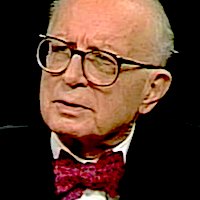
Daniel J. Boorstin
1914 – 2004 CE
American intellectual Paul Revere
“An intellectual Paul Revere,” American historian, US Congressional Librarian, Rhodes Scholar, and Pulitzer Prize winner; Boorstin became a Communist Party member when young, a prominent conservative in later life. Promoting the "consensus school" of history, he praised entrepreneurs and inventors, criticized conformity, bureaucracy, slavery to tradition, and an historical emphasis on class conflict. On a parallel track with Marshall McLuhan he praised, analyzed, and warned about the unintended consequences and social upheaval that inevitably arises from new technology. With self-effacing insight, he looked deeply into American culture both praising and criticizing aspects of this unprecedented historical experiment.
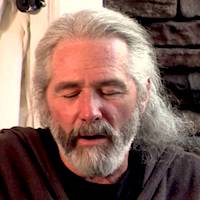
Daniel Ladinsky
1948 CE –
Wisdom lineage poetic channeler
American poet, translator, and interpreter; Ladinsky lived for 20 years in a Meher Baba spiritual community in India while working in free rural health clinics. Basing his work mainly on Rumi and Hafiz, he describes them not as translations but as interpretations and renderings faithful to the spirit though not to the words of these original sources. Frequently licensed and quoted by Christian, Buddhist, Hindu, Jewish, Muslim and Sufi leaders and organizations, and translated into many languages; his books maintain international best-selling status.
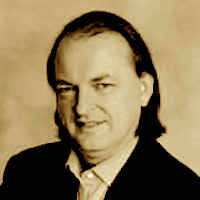
Dave Marsh
1950 CE –
Music critic, magazine editor, and author; Marsh mainly focuses his work on musicians and music and became a Rock and Roll Hall of Fame committee member.
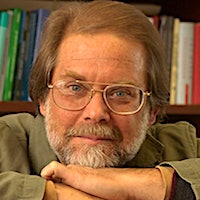
David Loy
1947 CE –
Zen teacher, philosopher, and ecological activist; David Loy studied with Yamada-roshi and Robert Aitken-roshi, completed a formal koan practice in 1988, and taught at Singapore University, Bunkyo University in Japan, and Xavier University in Ohio. With a focus on encouraging individual spiritual practice to extend to and help solve social and ecological problems, he lectures internationally, teaches workshops, and leads meditation retreats.
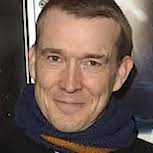
David Mitchell
1969 CE –
Born in England and living for times in Sicily and Japan with his Japanese wife and children, Mitchell infuses his novels with metaphysical insights, deep philosophical speculations, and wisdom beyond words. Struggling against a stammering speech disorder and supporting an autistic son; he’s written eight novels, numerous short stories and articles, translations from Japanese into English, and two operas. He wrote his last novel for the Future Library project which collects a literary work each year not to be released until 2114.
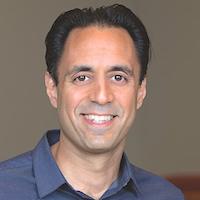
Deepak Malhotra
1978
"Professor of the Year"
Popular Harvard business school professor, award-winning author, and influential consultant; Deepok Malhotra also works with governments making serious steps and plans to prevent and end warfare.
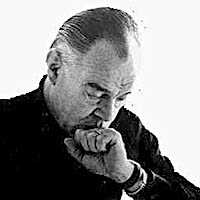
Denys de Rougemont
1906 – 1985 CE
Non-conformist leader, influential cultural theorist
Cultural theorist, prolific writer of 32+ books, and Swiss defender against Nazi propaganda; de Rougemont was an influential non-conformist of the 1930's, opponent of his era's totalitarian movements, and advocate for European federalism. His ground-breaking book, Love in the Western World, questioned and criticized Western Civilization's fascination with romantic, unrequited love. A paramour of Saint-Exupéry's Salvadoran wife, Consuelo ("The Rose"), he modeled for a Little Prince painting, wrote a Saint-Exupéry biography, and later helped Consuelo write her own autobiography.
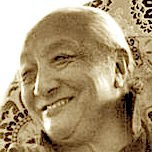
Dilgo Khyentse Rinpoche དིལ་མགོ་མཁྱེན་བརྩེ།
1910 – 1991 CE
"Mind" incarnation of Jamyang Khyentse Wangpo
Vajrayana master, poet, terton, scholar, and head of the one of Tibet’s main traditions; Khyentse Rinpoche became a major resource and driving force during Tibetan Buddhism’s transition out its 1000 years of isolation into the rest of the world. A descendent of Tibet’s legendary king, Trisong Detsen and a political minister father; he began an intense meditation practice and religious philosophy training when only 7 years old and then spent 13 years in caves and remote hermitages doing solitary retreats. An “archetype of spiritual teacher” and root teacher to hundreds of Tibet’s young lamas and to most of Tibet’s important modern teachers including Chogyam Trungpa, Dzongsqr Khyentse, the Dalai Lama, and Pema Chödrön; Khyentse Rinpoche’s wisdom and compassion continues to spread throughout the world.
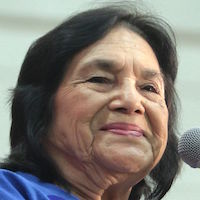
Dolores Huerta
1930 CE –
Champion for workers', immigrants', and women's rights; labor leader and civil rights activist; co-founder of an organization that became the United Farm Workers (UFW); Huerta was the first Latina inducted into the Women's Hall of Fame and received both the Eleanor Roosevelt Award for Human Rights and the Presidential Medal of Freedom. In 1988 her severe beating (necessitating spleen removal in emergency surgery) by police during a peaceful protest was caught on videotape and resulted in change SFPD crowd control policies and a huge settlement that she used to benefit farm workers.A frequent subject for murals, ballads, and the names of schools; she was on stage with Robert Kennedy just before his assassination, in 2008 formally placed Hillary Clinton's name into nomination, and was honorary co-chair of the 2017 Women's March on Washington. Though almost 90, she continues to work through her foundation on health, environment, education, and economic development. (picture at age 86)
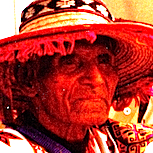
Don José Matsuwa
1880 – 1990 CE
Wounded healer, farmer, Huichol shaman, master ceremonial leader, window into our mysteriously inter-related and sacred world; Don José Matsuwa devoted his life to completing the sacred path of the shaman, to healing as a way of life and an art form restoring both individual and planetary balance. An important influence on Joan Halifax, she said, “I loved this old man. He was very funny, wise and crazy.” He visited Northern California and inspired the Dance of the Deer Foundation and the “Planetary Dance” that since 1980 has been performed each year and now in dozens of countries.
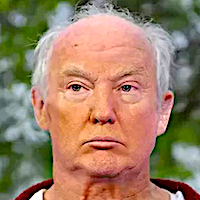
Donald Trump
1946 CE –
Worst President in U.S. History
Arguably the worst president in U.S. history, Trump is leaving behind as his legacy thousands of lies, scores of illegal and corrupt actions, and a country and world much worse than when he took office. The epitome of ego-centrism, arrogance, and corruption; he's undermined the rule of law, the constitution, and basic decency. An extreme racist, homophobe, and male chauvinist; it's hard to imagine someone who has sold more of their soul to the devils of materialism. But in spite of so much degradation, he maintained a serious and substantial number of followers. Why? Could it be because in times of turbulent change, people who don't think for themselves desperately want someone to tell them what to do and easily mistake bombastic arrogance for true confidence?
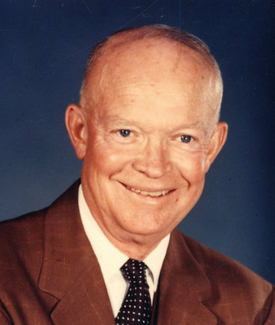
Dwight D. Eisenhower
1890 – 1969 CE
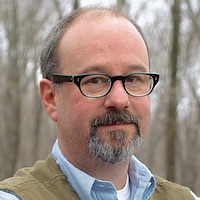
Dwight Garner
1965 CE –
American Journalist
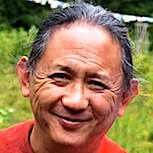
Dzigar Kongtrül Rinpoche ཛི་གར་ཀོང་སྤྲུལ།
1964 CE –
Tibetan tulku, buddhist lama, abstract expressionist painter, motorcyclist, and Pema Chödrön’s main teacher; Dzigar Kongtrul Rinpoche has called creativity “the essence of everything.” He continues a powerful rimé or non-sectarian movement that started in 19th century Tibet and promotes a blending of traditions, an appreciation of diversity, and an opposition to any kind of dogmatic narrow-mindedness or chauvinistic attitudes. Often in solitary meditation retreat but also frequently and widely traveling the world, Rinpoche stands out as one of the main modern influences continuing our tradition of Wisdom Beyond Words.
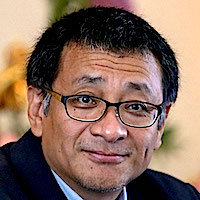
Dzogchen Pönlop
1965 CE –
Dzogchen Ponlop Rinpoche རྫོགས་ཆེན་དཔོན་སློབ་རིན་པོ་ཆེ། (1965 - )
One of the highest ranking Nyingma tülkus, Tibetan Buddhist scholar and meditation master, Dzogchen Monastery abbot, Nalandabodhi president, and Nītārtha Institute founder; Ponlop Rinpoche was born at Rumtek Monastery in Sikkim and grew up saturated in the ancient Tibetan Buddhist teachings and practices studying with the 16th Karmapa, Dilgo Khyentse Rinpoche, and the yogi Khenpo Tsultrim Gyamtso. This Eastern Wisdom began blending with the West when he became editor of a journal that explored Eastern and Western views on Buddhism, came to America in 1980 as Gyalwang Karmapa’s attendant, studied comparative religion at New York’s Columbia University, and began living and teaching in Seattle.
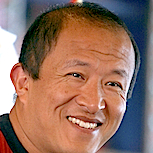
Dzongsar Khyentse Rinpoche རྫོང་གསར་ འཇམ་དབྱངས་ མཁྱེན་བརྩེ་ རིན་པོ་ཆེ། (Dzongsar Jamyang Khyentse Rinpoche)
1961 CE –
"Activity" incarnation of Jamyang Khyentse Wangpo
Filmmaker, writer, Tibetan lama, and active philanthropist; Dzongsar Rinpoche continues the traditions of the ecumenical Rimé school that began in the 1880s and of Dzongsar Khyentse Chokyi Lodro’s emphasis on bringing Tantric Buddhism to the West. The son of famous lama Thinley Norbu and grandson of Dudjom Rinpoche, he was a close student of Dilgo Khyentse. His philanthropic work began with a focus on the education, health and safety of exploited women and children in India and Cambodia and has spread around the world into a global volunteer network now strong in many countries. His 4 popular and award-winning movies entertain, educate, and spread insight into the timeless wisdom and compassion of realization.

E. F. Schumacher
1911 – 1977 CE
The “People's Economist”
While working in Burma during the mid ‘50s, Schumacher developed a set of principles he called “buddhist economics” — emphasizing the idea that people need good work for proper human development. Traveling through many Third World countries, he helped governments create self-reliant economies based on local resources and needs. A pioneer and instigator in creating a philosophy of “appropriate technology,” and known as the “People's Economist,” his economic theory based on wisdom instead of only materialism, became one of the most serious alternatives to the dominant economic theories based on Adam Smith and John Maynard Keynes.
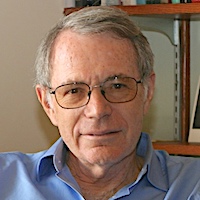
Eric Foner
1943 CE –
Historian, professor, Pulitzer Prize winner
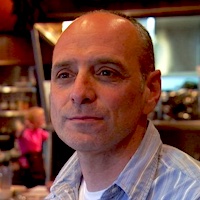
Eric Schlosser
1959 CE –
Investigative journalist and author.
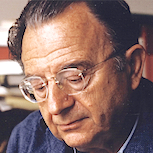
Erich Fromm
1900 – 1980 CE
One of the most powerful voices of his era promoting the true personal freedom beyond social, political, religious, and national belief systems
One of the world’s leading psychoanalyst-philosophers, “forefather of socialist humanism,” civil rights activist, and anti-Vietnam protestor; Fromm was born Jewish, became a rabbi but then came to believe that religion only breeds hatred, inequality, and discord. Becoming another “apostle of doubt,” he criticized political ideologies, cultural convictions, and all authoritarian value systems. Escaping Hitler and the Nazis in Germany, he came to the US where his talks and writings initiated the beginning of political psychology and explored the modern influences toward fascism, irrational behavior, consumerism and the “escape from freedom.” As most of our wisdom holders, he focused on unifying opposites, in particular as in his last book, paradox between “having” and “being.”
Interview with Mike Wallace
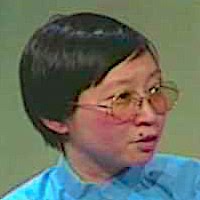
Eva Wong
(c. 1951- )
Champion of Qigong, Fengshui, and a Taoist approach to health and healing
Born in Hong Kong and growing up hiking and meditating in the mountains of the New Territories, Eva Wong connected with Taoism at an early age and became a translator and author of many books on Taoist arts, qigong, and fengshui. She began studying Tibetan Buddhism when only 7 years old and is the 19th generation lineage carrier of Xiantianwujimen Taoism (the Pre-celestial Limitless Gate School). She practices several Chinese Fengshui systems and consults on applying these principles for personal homes, commercial sites, and spiritual centers. In this tradition, she also specializes in qigong, divination, and the I Ching. Taking to heart the Taoist principles of simplicity, anonymity, and selflessness; she insists she is not a teacher, doesn’t publish pictures of herself, and doesn’t give out personal details like her birth date.
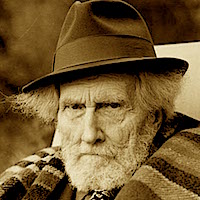
Ezra Pound
1885 – 1972 CE
Major influence on modern poetry, developer of Imagism, critic of international capitalism to the extent of supporting Hitler and Mussolini; Pound helped to discover, animate, and promote literary figures including Ernest Hemingway, T. S. Eliot, James Joyce, and Robert Frost. The depth and genius of his writing was tarnished by his political views and actions which resulted in being convicted of treason, solitary confinement and probably torture in a US military prison that caused a mental breakdown and 12 years of incarceration in a Washington, D.C. psychiatric hospital. Considered by Arthur Miller “worse than Hitler” and called a "National Monster" by many; Hemingway wrote that his writing “will last as long as there is any literature" and Carl Sandburg that "All talk on modern poetry, by people who know, ends with dragging in Ezra Pound somewhere.” In later life he confessed to his Jewish protege Allen Ginsberg his confused belief in ideologies and that, “Any good I've done has been spoiled by bad intentions […] But the worst mistake I made was that stupid, suburban prejudice of anti-semitism.” Although sages warn against flattery and recommend welcoming criticism, Pound’s anti-semitism and support for fascism make it extremely difficult although increasingly important to openly hear his valid criticisms of our culture and state of civilization. The smartest people learn from smart people’s mistakes.
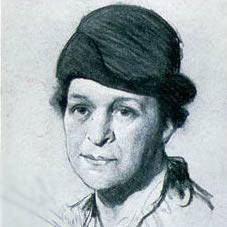
Frances Perkins
1880 – 1965 CE
One of the most influential champions for worker's rights
First woman cabinet member, close friend of FDR, and fierce advocate for worker's rights; Perkins helped create unemployment insurance, social security, the minimum wage, the Civilian Conservation Corps, and laws to regulate child labor. The longest serving Secretary of Labor (1933-1945), she became essential in establishing and enacting the New Deal as well as the Immigration and Naturalization Service. During the challenging times during World War II, she mediated strikes, balance labor vs. war needs, and helped the transition of women moving into traditionally male-only jobs. Her skill and influence were profound but without much charisma she mainly stayed in the background without much public attention. Her honors include the National Women's Hall of Fame, the Labor Hall of Fame, the 31 Icons of a LGBT History Month, and the 2019 Government Hall of Fame. Senator Elizabeth Warren uses a podium built from wood recycled from her homestead.
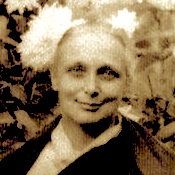
Freda Bedi, Sister Palmo
1911 – 1977 CE
Freda Bedi, Sister Palmo (1911 – 1977)
First Western woman to become a Tibetan Buddhist nun and married to a Sikh from Guru Nanak’s clan; Freda Bedi spoke before hundreds of thousands of people helping Gandhi and his national independence movement, was arrested and and spent months in prison held along with her children. People came to her by the thousands just for her blessing and she later worked for the United Nations Social Services, the Ministry of External Affairs, and the Tibetan Refugees Commission. Nehru asked her to be in charge of the Social Welfare Board in 1959 when the Dalai Lama and thousands of Tibetans arrived in India and she began studying with the 16th Karmapa. She helped establish the Young Lamas Home School and asked Chogyam Trungpa to train and become spiritual advisor to young monks there.
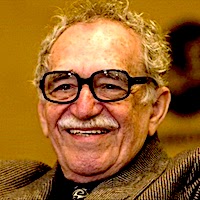
Gabriel García Márquez (Gabo, Gabito)
1927 – 2014 CE
The greatest Colombian
“The greatest Colombian who ever lived,” journalist, newspaper editor, 1st Colombian and 4th Latin American Nobel Prize winner, and the best and most popular Spanish writer since Cervantes; Gabriel García Márquez quickly became a respected and influential critic of Latin American politics. He popularized the writing style now called magical realism that has now pervaded modern literature and film, perhaps reaching a peak in the writings of Haruki Murakami. Fellow Nobel Prize winner, William Kennedy called his book, One Hundred Years of Solitude "the first piece of literature since the Book of Genesis that should be required reading for the entire human race" but he was labeled a “subversive” and denied US visas until Bill Clinton called this book his favorite novel and lifted the travel ban. An active, anti-imperialist socialist, his muck-racking journalism led to an exile in Europe and relocation in Mexico but his fame opened political doors and he became an important influence on Cuban president Fidel Castro, other Latin American leaders, and on negotiations between the Colombian government and guerrilla groups.
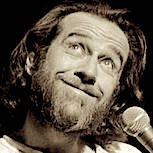
George Carlin
1937 – 2008 CE
One of the most influential social commentators of his time
“Dean of counterculture comedians,” host of the first Saturday Night Live in 1975, and one of the most influential social commentators of his time; Carlin, with skill and insight, fearlessly challenged the status quo and ceaselessly poked fun at America’s most revered sacred cows. Arrested and at the center of a 1978 U.S. Supreme Court case, he transcended comedy and became a social psychology and political influence. Admired and an inspiration for Larry King, Jon Stewart, Bill Maher, Lily Tomlin, Jerry Seinfeld, Garry Trudeau, and many more; he skillfully brought the courage and iconoclastic willingness common with most of our lineage holders into 20th century world culture.
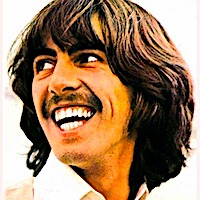
George Harrison
1943 – 2001 CE
Guitar-playing philanthropist
Singer-songwriter, "the quiet Beatle", guitar-playing genius, Hare Krishna fan, Yogananda student, philanthropist, and film producer; George Harrison influenced popular music toward folk rock and introduced Indian culture and music to the West. Two-time Rock and Roll Hall of Fame inductee, he co-founded the Traveling Wilburys, collaborated on songs and music with Bob Dylan, Eric Clapton, Ringo Starr and Tom Petty. Rolling Stone magazine ranked him number 11 in their list of the "100 Greatest Guitarists of All Time.” He supported the civil rights movement, protested against the Vietnam War, supported Greenpeace and nuclear disarmament, recorded pop music's first charity single to support Bangladesh which earned almost $14 million, and established a UNICEF Humanitarian Fund.
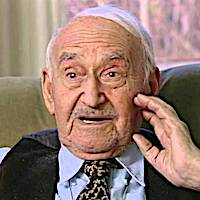
George Seldes
1890 – 1995 CE
Pioneering investigative journalist and champion of the exposé
Star investigative reporter, muckraker, contrary-minded journalist, author, philosopher, and true citizen of the world; George Seldes lived a 104-year life full of adventure in dangerous countries, political challenge on the edge, and philosophical insight threatening the status quo. There and reporting on Hitler’s Berlin, Lenin’s Moscow, Mussolini’s Rome, and Franco conquering Spain; he was often characterized as too radical. Criticized and censored by newspapers, foreign and U.S. governments; one of his censored interviews with the supreme commander of the German Army could have prevented the rise of Nazi power before World War II. Expelled from the Soviet Union after interviewing Lenin and “not showing enough respect,” and from Italy after he implicated Mussolini (who had worked for Seldes before gaining power) in the murder of an opposition leader; he wrote exposés on the Roman Catholic Church, the global arms industry, and the complicity of the press with the tobacco industry in suppressing information on the bad effects of smoking. Toward the end of his life, he spent 20 years gardening and gathering material for a book of the world’s most influential thoughts.

Gesshin Myoko Roshi
1931 – 1999 CE
Moon heart miraculous light
Rinzai Zen master as a girl known by Adolf Hitler who thought she was the perfect Aryan but whose family escaped to California; Gesshin Myoko (moon heart miraculous light) studied and taught Japanese and Vietnamese Zen. Painter, poet, calligrapher, and mystic from an early age; she led a life filled with spontaneous intuition and insight that led to meeting Sasaki Rōshi, becoming his disciple, helping him start thriving Zen centers, and becoming the head teacher. She later felt this approach was too severe and not appropriate for western students and developed her own Zen forms not tied to a particular culture, tradition or time period; but instead, connected with the particular students and environment involved.
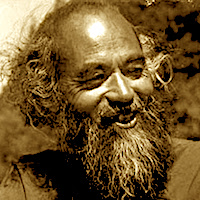
Gia-Fu Feng 馮家福
1919 – 1985 CE
Counterculture Patriarch, translator, teacher and Taoist rogue
The son of a wealthy Shanghai banker, a founder of the Bank of China, Gia-Fu became a millionaire three times in his life and each time gave most of his money away. During the Japanese invasion of China he moved to Kunming and after the war to the USA to study international finance at the Wharton School. Because of the Korean war, he could not return to China and instead wandered around America in an old car. On the West Coast he encountered the Beat Generation and became friends with Alan Watts, Jack Kerouac, Abraham Maslow, Fritz Perls, and his student Michael Murphy, the main founder of Esalen Institut
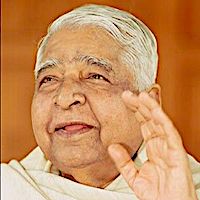
Goenka ဂိုအင်ကာ (Satya Narayan)
1924 – 2013 CE
"The Man who Taught the World to Meditate"
An Indian businessman who by chance met a spiritual teacher and set out on a spiritual path, Goenka taught meditation techniques previously reserved for monasteries to average people. He established centers all over the world and trained an estimated 1300 teachers. His courses emphasized a scientific, experiential, non-sectarian approach to meditation and over 120,000 people each year attended. Western students who set off on their own and became influential in the West include Jack Kornfield, Ram Dass, Jon Kabat-Zinn, Joseph Goldstein, and Sharon Salzberg.
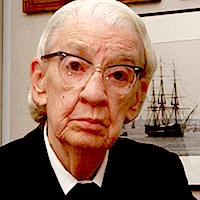
Grace Hopper (Grace Brewster Murray Hopper )
1906 – 1992 CE
Computer programming pioneer "Grandma COBOL,” US Navy admiral nicknamed "Amazing Grace,” IT goodwill ambassador, and recipient of 40 honorary university degrees; Hopper balanced a disciplined and conventional external with a fiercely independent, irreverent, and creative inner force. Her work and belief that computer code could be written in English led to the development of the early programming language, COBOL that’s still in use today. One of the oldest active duty officers in the US Navy’s history, she served for over 42 years and received the National Medal of Technology, the Presidential Medal of Freedom, and numerous awards and honors. While her team was working on an early computer in 1947, they discovered a problem caused by a moth in a relay. This was the physical source of the symbolic term, "debugging."
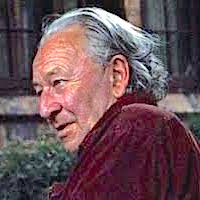
Gregory Bateson
1904 – 1980 CE
Poet-philosopher, deep thinker, anthropologist, and developer of a "meta-science;” Bateson established double-bind theory, helped apply systems theory to the social science, and was part of the core group that developed cybernetics. While married to Margaret Mead, he worked in South Pacific islands on anthropology and during World War II on black propaganda which led to a marriage-fatal disagreement with his wife on the use of science and technology in social planning. Describing 20th century history as a malfunctioning relationship based on betrayal and hate, he posed the development of cybernetics as a direction toward the creation of healthy relationships through the healing of paradox and the non-dual combination of thought and emotion.
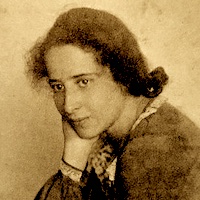
Hannah Arendt
1906 – 1975 CE
Fearless researcher into the darker reaches of the human psyche
An influential philosopher, historian, and deep thinker; Arendt developed some of the most important political theories of the 20th century. An early, 1932 critic of the Nazi Party; she was arrested the year Hitler came into power, imprisoned, escaped, and her German citizenship was taken away in 1937. Arrested again in France, she escaped again and eventually came to the USA in 1941
Influenced by and a major influence on Martin Heidegger, she studied under him and had a four-year affair when she was 17 and he 35. She also studied with Karl Jaspers who became her doctorate degree supervisor.
Her research and thinking focused on the formation of nationalistic, fascist, and totalitarian systems and how ordinary people become controlled into following them. She applied these theories in covering the trial of Adolf Eichmann for the New Yorker in 1961 which created one of the biggest controversies of the era.
Instead of accepting the common depiction of Eichmann as an evil monster, she described him as a victim of an unwillingness to think clearly and instead mindlessly take orders. This refuted the dualistic understandings and accepted ideas of the time about unquestioning obedience to superiors. These were some of the most relevant issues in preventing more totalitarian take-overs but brought about intense criticism of her from many sides.
Perhaps Jung's ideas about projection were at play here: people not seeing or admitting the pulls toward this kind of evil in themselves and projecting it out completely on Eichmann whom she described as only "banal," ordinary, fixated on the duty of obedience, and abandoning critical thinking — qualities possibly shared too closely by the critics.
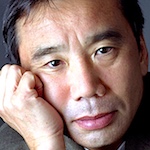
Haruki Murakami
1949 CE –
A “global” writer going beyond his time and culture to explore universal themes, Murakami takes his characters and readers into an inner dreamscape where they together look into the beyond thought world of imagery, perception, and consciousness. Grandson of a Buddhist priest and an Osaka merchant, he became both the most experimental and most popular Japanese novelist translated into English. Called a “voice of his generation,” his books create an allegorical world of magical realism and convey an understanding and appreciation for the vast sacredness of each moment.
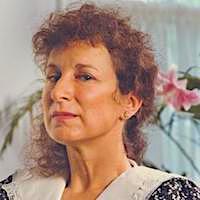
Heleni Kazantzakis
1903 – 2004 CE
Orphaned at 15, Heleni Samiou met—and fell in love with—Nikos Kazantzakis when she was 21 and he was 41. They lived together for 20 years before marrying in 1945. Although writing several books herself and even winning literary awards, she mainly dedicated herself to supporting her husband's writing career by transcribing his manuscripts. For example, using only a small typewriter, she typed and re-typed his 33,330 verse epic poem, The Odyssey, seven times. Many of her suggestions and ideas became integral parts of his work. After Nikos died, Heleni moved to Geneva where she created a welcoming environment for literary circles, Kazantzakis fans, and Greek freedom fighters. She was persecuted by the Greek military dictatorship, captured as a prisoner of war by Turkish soldiers, and escaped with the aid of British helicopters. She donated the profits from Nikos' books as relief aid to the families of political prisoners after the Turkish invasion of Cyprus in 1974.
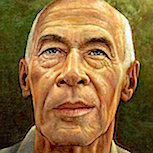
Henry Miller
1891 – 1980 CE
Banished from the UK, literary bohemian in 1930’s Paris, painter of over 2,000 watercolors, author of over 50 books (many banned for a generation), anti-Vietnam War voice, “one of the most iconoclastic literary spirits of our time,” legendary lover from Anaïs Nin to Playboy magazine star Brenda Venus when he was 84 years old; he pioneered new literary forms, attacked respectability, broke cultural taboos, and in one of the main events in 1960’s sexual revolution, won a Supreme Court decision on obscenity. Continuing a tradition from Dostoyevsky, Balzac and Nietzsche; he was an important influence on Jack Kerouac, Philip Roth, Alan Ginsberg and Norman Mailer who called him “the writer’s writer.”
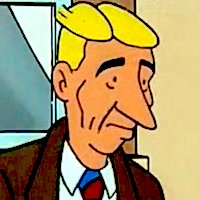
Hergé (Georges Prosper Remi )
1907 – 1983 CE
Intrepid reporter of world culture
Hergé translated world culture—from the past and future, from Native American, African, European, Mid-Eastern, South American, Chinese, and Tibetan—to a world only beginning to open its eyes to a new political and social consciousness just beginning to transcend nationalism. He created a visually engaging, highly entertaining, and wisdom transmitting art form that became one of the 20th century’s most popular publications. Although the early Tintin cartoons and books were used as propaganda by a conservative Catholic newspaper, steered away from political views during the German occupation of Belgium, and although Hergé himself was accused of racism and arrested four times; his positive impact on international consciousness steadily increased as more than 120 million Tintin books were sold and translated into 40+ languages. His travels introduced him to Asian thought which deeply influenced his message. He described his political views by quoting Chuang Tzu.
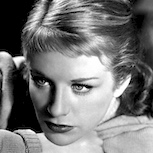
Hildegard Knef
1925 – 2002 CE
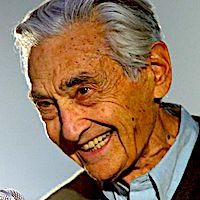
Howard Zinn
1922 – 2010 CE
Historian of the oppressed and defeated
Educational innovator, historian, author of 20+ books, and democratic socialist; Zinn grew up in a family of factory workers who couldn’t afford to buy books or magazines. In a dramatic and life-molding event, when young and participating in a peaceful political rally, he was knocked unconscious by mounted policing charging on the protestors. During the Vietnam War, he supported Vietnam Veterans against the War, the Civil Rights and Labor Movements. He backed the Native American, Black, and Women’s equality efforts, opposed the 2003 invasion of Iraq, and the extensive military bombing of civilian targets. Realizing the omni-influence of the phrase, “History is written by the victors,” he worked hard to popularize the stories of the morally superior but physically defeated historical groups. The success of these efforts could be measured by the identities and allegiances of his major critics: Republican Indiana Governor Mitch Daniels tried to keep his book out of state schools, because of his support for Martin Luther King, the FBI added him to their Security Index and label him a high security risk, and—even as recently as 2017—an Arkansas legislator tried to ban his books from public schools.
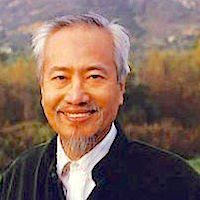
Hua-Ching Ni
1925 CE –
Heir to a 74-generation Taoist tradition and a 38-generation Chinese medical one, grandmaster, healer, author of 70+ books in English and 50 in Chinese; Hua-Ching Ni grew up in China studying with remote mountain Taoist masters and his family medical adepts. When Mao took over China in 1949, he left his family and by himself migrated to Taiwan where he taught Taoism and practiced medicine for 28 years. In 1976 at the request of students he moved to Los Angeles and began teaching in America where he founded a medical school, practiced medicine, and taught tai chi, qi gong, Taoist meditation, and internal alchemy.
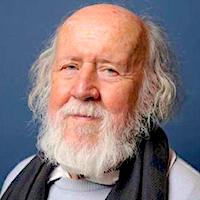
Hubert Reeves
1932 CE –
Prolific science popularizer, professor, NASA advisor, and successful Director of Research; Reeves continues to lead a long and productive life dedicated to avoiding scientific pitfalls and encouraging a sane and wise approach to scientific development. A good example of how science can blend and merge with spiritual understanding—like Aldous Huxley's more philosophical concluding realization—Reeves summarizes his scientific understanding with the recognition that the most important priority in life is to be kind and help people.
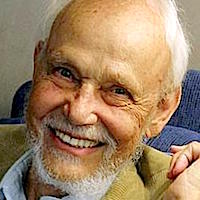
Huston Smith
1919 – 2016 CE
Born in Suzhou, Huston Smith lived there with his Christian missionary parents until 17 when he moved to the USA where he became not only a religious scholar but a practitioner of his Christian tradition as well as Vedanta, Sufism, and Zen Buddhism for more than 10 years each. A close student of Aldous Huxley, he became an integral part of the Harvard Project and the Center for Personality Research working with Timothy Leary and Ram Das. When the Supreme Court ruled against Native Americans using peyote as a religious sacrament, he took up the cause and helped pass the American Indian Religious Freedom Act amendment. In the 1950s, he helped Martin Luther King break the color barrier at a segregated University and later helped the Dalai Lama come to the USA for the first time. Lifelong advocate of religious synergy, social justice and peace; his work blended theology, mythology, and science.
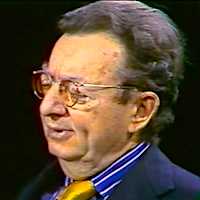
I. F. Stone
1907 – 1989 CE
One of the greatest 20th century reporters
Investigative journalist, author and political commentator; Stone's newsletter was ranked 2nd highest 20th century journalism publications and 16th on top 100 U.S. journalist works. He became a strong and influential voice against McCarthyism, the Vietnam War, and racism in the military. He graduated high school 49th in a class of only 52 students but during that time launched a 65+ year journalist career investigating corruption and exposing how "All governments lie."
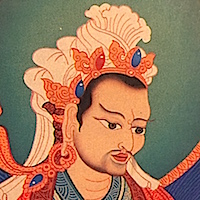
Indrabhūti ཨིནྡྲ་བྷཱུ་ཏི། ("The Enlightened Siddha-King")
892 CE –
Mahasiddha #42
Indrabhuti ཨིནྡྲ་བྷཱུ་ཏི། The Enlightened Siddha-King (late 9th century)
“The first tantrika,” archetypal tantric king, and inspiration for several tantric lineages; Indrabhuti for political reasons pledged his Buddhist sister Laksminkara in marriage to the prince of a neighboring Hindu kingdom. She went to live with the neighboring prince but soon became disillusioned with the materialism, superstition, and decadence of her new country. Late one night she fled the palace and found a cave in the mountains where she lived and practiced meditation, attained enlightenment and scandalously started teaching untouchables. This greatly upset the Hindu king but inspired Indrabhuti to do the same and leave the comfort of palace life to devote himself completely to his spiritual path. He rejected however a path that rejected sensual pleasure and sex and practiced the Guhyasamaja father-tantra in the Anuyoga Dzogchen lineage. Mahasiddha #42
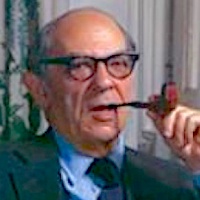
Isaiah Berlin
1909 – 1997 CE
"the world's greatest talker"
Philosopher, political theorist, translator and historian; Berlin lived in Petrograd when he was six during the Russian revolutions of 1917 and then moved to the UK. A star student, he translated famous books from Russian into English and joined the Diplomatic Service during World War II. Highly respected for his lifetime of defending civil liberties, pluralism, and liberal theory; he also became a strong and lasting voice against Communism. With penetrating insight he applied the lessons of history to modern-day problems like nationalism, totalitarianism, racism, and religious bigotry.
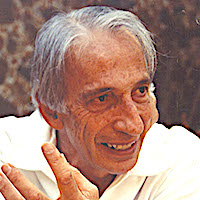
Ivan Illich
1926 – 2002 CE
"an archaeologist of ideas"
Philosophical eco-warrior, Roman Catholic priest, anarchist, polymath, "jet-age ascetic," and prolific author; Illich—working in 10 languages—critically analyzed Western culture—economics, medicine, education, transportation, development, work and energy. After becoming a priest in 1951, he signed up to work in one of New York's poorest areas with Puerto Rican immigrants. This led to a University appointment in Puerto Rico that lasted until he was fired for being too critical of the pope's anti-birth control stance. His later life became an enlivening educational experience for all within his influence.
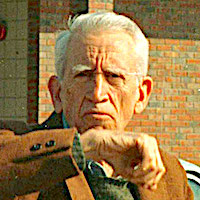
J. D. Salinger
1919 – 2010 CE
Something about the writings of J. D. Salinger captured the imagination of the 1950's and 60's and continues on today. He helped bring into Western culture more of an appreciation for authenticity, genuineness, and the idea of being true to oneself. His life intersected with and influenced many famous people of his time. He dated playwright Eugene O'Neill's daughter (who left him to marry Charlie Chaplin), socialized with actresses like Anne Bancroft and Audrey Hepburn, and studied with spiritual teachers like D. T. Suzuki. He became a serious Zen student, studied Lao Tzu, Sufi mysticism, yoga, and Vedanta. Authors who cite him as a major influence include Haruki Murakami, John Updike, Philip Roth, Louis Sachar, Tom Robbins, and many more. After a brief experience with fame, Salinger returned to his Lao Tzu-influenced roots of inscrutable privacy and anonymity.
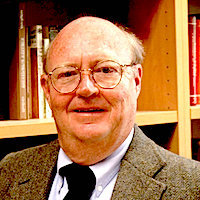
J. Rufus Fears
1945 – 2012 CE
Historian, educator, and serious student of lessons from the past applied to current affairs; Fears was voted Professor of the Year 3 times at the University of Oklahoma and 4 times at Indiana University. His lectures were so popular that none of the lecture halls were large enough to hold the thousands of students wanting to sign up for his classes in History and Political Science. A powerful force animating the relevance and meaningfulness of historical events and people, his last book was titled, Dangerous Delusions: Why We Ignore the Lessons of History at Our Risk. His insights however didn’t seem to extend much beyond the broad into the personal. He ridiculed health advice like exercise and diet, died at only 67 years old.
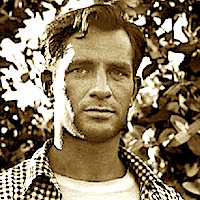
Jack Kerouac
1922 – 1969 CE
Father of the Beat movement, literary iconoclast, apostle of ordinary mind, and “new Buddha of American prose;” Jack Kerouac became one of the biggest influences on American culture. A symbol of contrast and paradox, he was a devout Catholic who became instrumental in launching and popularizing American Buddhism. Inventor of the term “Beat Generation” and foundation for the hippie movement, counterculture and left, he cheered on Joe McCarthy’s anti-communism while smoking marijuana. Like most pioneering visionaries breaking out of status quo stereotypes; he endured with deep true heart the hostility of academia, journalistic jealousy, secret police, the incomprehension of even his best friends, his family’s repression, vast media attacks, and the selling-out of his publishers. Relatively happy in obscure poverty and the most simple life style, he was undone by fame and fortune. Alan Ginsberg described him as “the single greatest writer in the twentieth century.”
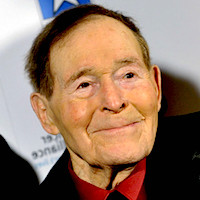
Jack LaLanne
1914 – 2011 CE
Jack LaLanne (1914 – 2011)
"Godfather of Fitness,” the "First Fitness Superhero,” pioneering champion of physical health and nutrition; Jack LaLanne practiced and proved what he preached. “Turning his life around” at 15 after learning about good nutrition, ending his sugar and junk food addiction, and beginning to work out every day; he began hosting the longest-running television program, a fitness show that lasted 34 years. He opened one of the world’s first fitness gyms in 1936 and invented many exercise machines still used today. In spite of doctors warning their patients about visiting his health club, most people ridiculing his diet, and calling him a health nut charlatan: LaLanne persevered demonstrating the truth of his words by at age age 45 doing 1,000 jumping jacks and 1,000 chin-ups in 1 hour, 22 minutes; at age 60 swimming from Alcatraz Island to Fisherman's Wharf while towing a 1,000 pound boat; at age 70 handcuffed, shackled, and fighting strong winds and currents, towing 70 rowboats for 1 mile; and at age 96 the day before he died completing his regular 2-hour work out.
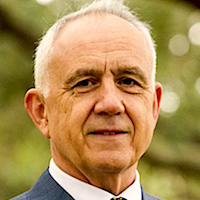
Jack Weatherford
1945 CE –
Jack Weatherford (1945 - )
Anthropologist, specialist in tribal histories and cultures, and deep thinker about the events and influences of historical events; Weatherford has worked hard uncovering the histories re-written by the victors like the many positive influences of American Indians on US culture, politics, medicine, agriculture, and ecology. This extended to the indigenous cultures of Bolivia, the Amazon, Mongolia and many other little known cultures. For this kind of work, he was awarded Mongolia’s highest national honor for foreigners.
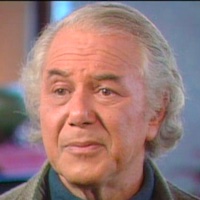
Jacob Needleman
1934 CE –
American religious scholar, historian, philosopher, and author
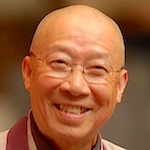
Jakusho Kwong
1935 CE –
Art teacher, postman, sign painter, Sonoma State University professor, and one of the first students of Shunryu Suzuki and Chogyam Trungpa; Kwong received official recognition as a Zen teacher from the Soto School in Japan and with his wife and dharma partner, Laura (Shinko) founded Sonoma Mountain Zen Center where they raised 4 sons and brought genuine Zen understanding to numerous students. After giving Richard Baker Dharma transmission the previous year, Suzuki Roshi’s was preparing the same for Kwong Roshi when he died in 1971.
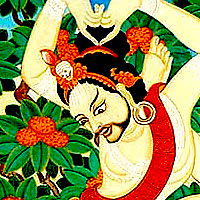
Jālandhara ཛཱ་ལནྡྷ་ར་པ། ("The Ḍākinī's Chosen One")
888 CE –
Mahasiddha #46
Jalandhara ཛཱ་ལནྡྷ་ར་པ། “The Ḍākinī's Chosen One” (late 9th century)
Another wealthy and privileged brahmin who saw through the materialistic values of his culture and renounced it to search for a more meaningful life, Jalandhara left everything to live in a cremation ground meditating. Going on to become an important mother-tantra siddha, one of the nine naths, and guru to 10 of the 84 Mahasiddhas; he founded one of the two main nath lineages (A Hindu tradition favored by Kabir that blended Shaivism, Buddhism and Yoga traditions using Hatha Yoga to transform the physical into awakened perception of “absolute reality”), taught practices that unify the male and female forces, dissolve the subject/object dichotomy, and open the non-dual doors of perception. Mahasiddha #46
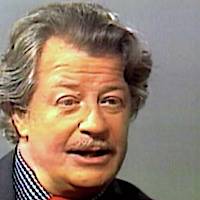
James Clavell
1921 – 1994 CE
Fictionalizing and fictional historian
Thought of as mainly a novelist but at heart an historian with a story-tellers flare for the dramatic, Clavell romanticized history and made it entertaining. Commentators describe Plato as more of a fictional, literature author than an historian; and, in a similar way, Clavell could be deemed more of a historian than a fiction writer. He appears in his novels as Peter Marlowe, a prisoner of war in King Rat, a novelist in Noble House, and a friend in Whirlwind. The non-fictional foundations of his books describe Japanese prison camp life in King Rat, William Adams—the first of a tiny number of Westerns to become a samurai—in Shogun, Jardine Matheson—founding father of one of the first Hong Kong trading companies and now one of the world’s largest companies, and in Whirlwind, the 1979 Iranian revolution in Iran. Also a filmmaker, his credits include The Fly in 1958, To Sir with Love and The Great Escape in the 1960’s, and many popular TV miniseries based on his books.
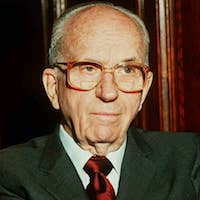
James Michener
1907 – 1997 CE
Historical and Generational Saga Master
Inspired storyteller of the human spirit, Michener created some of our most memorable fictional characters. Often writing for 12-15 hours a day for weeks and weeks, he created books that became best-sellers, movies, Broadway musicals, TV series, and a Pulitzer Prize winner. Because these books were so carefully researched, they became one of the more popular ways of learning about certain historical periods and peoples.
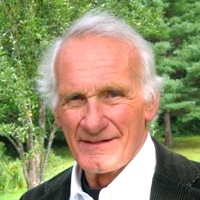
James P. Carse
1932 – 2020 CE
Thought-proving, influential, deep thinker
A History and Literature Professor of Religion for 30 years, Carse shook up his field with insightful, original realizations. Each year he taught courses on both the religions of the West as well as on religions of the East. His focus on Middle Eastern Studies opened his views to new and creative perspectives which have influenced many other "influencers" like Simon Sinek. His many awards included several NYU’s Distinguished Teaching Awards and an awarded Georgetown University's Doctor of Humane Letters degree. Some of his more popular books include Jonathan Edwards & the Visibility of God, Breakfast at the Victory, The Mysticism of Ordinary Experience, The Silence of God, Finite and Infinite Games, and The Gospel of the Beloved Disciple. With a dedication to the educational field and bragging that he started when he was 5 years old and never left, he bemoaned what he considered the "self-inflicted degradation of the university... Western civilization’s noblest creation."
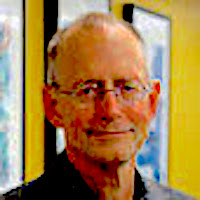
James Paradis
1942 CE –
Professor of writing and comparative media studies, author, and philosopher; Paradis concentrates on issues like the public reception and popularization of science, vernacular culture, and the representation of various kinds of expertise in the media.
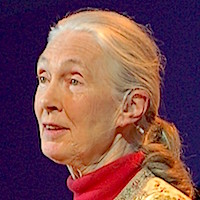
Jane Goodall
1934 CE –
Adventurer, environmental activist, scientist, pioneering primatologist, and wise gardener; Jane Goodall became UN Messenger of Peace, the world's best expert on chimpanzees, founder of the Roots & Shoots program, and an important influence on young people to choose helping the world over selling out to lucrative careers that plunder the planet. Criticized for changing the chimpanzee social group dynamics, she became an example of McLuhan’s dictum that “every new technology requires a new war” because it disrupts the status quo social order. In this case, the disruption went beyond the chimpanzee social order and also disrupted the human-to-animal and human-to-plant hierarchies. As Stevie Nicks describes her in the song Jane, “There are angels here on earth.”
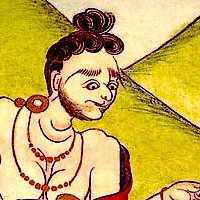
Jayānanda ཛ་ཡཱ་ནནྡ།། ("Crow Master")
11th - 12th century
Mahasiddha #58
A Tantric Buddhist master practicing in Bengal during a time when Buddhism was illegal, Jayananda was exposed by a jealous neighbor and imprisoned by the anti-Buddhist king. Before being captured though, he had befriended and fed a big flock of crows. In Tibetan culture crows are considered bad omens, capable of bringing great harm, and feared. But in a symbol of tantric transformation, Jayananda had made the crows allies. Then—metaphorically as crows or symbolically as an inclusion of the negative—the king was upended, reduced to hiding under his thrown, and as a consequence became a great and influential siddha himself. Mahasiddha #58
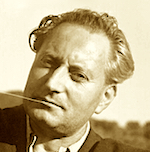
Jean Giono
1895 – 1970 CE
Jean Giono (1895 – 1970)
Son of a cobbler, one of France’s greatest writers, twice imprisoned pacifist, follower of Walt Whitman’s egalitarian pantheism, and grandfather to the modern ecological movement; Giono wrote numerous novels, short stories, articles, and poems. A master of metaphor, his masterpiece work The Man Who Planted Trees was rejected by Reader’s Digest for being too metaphoric. In response, Giorno refused any royalties, surrendered all his rights releasing it into the public domain, and gave free use to anyone who wanted to use it. Within 4 years it was translated into 12 languages and soon became a classic inspiration for everyone concerned with the environment and sustainability. An animated version won an Academy Award in 1988 and it’s considered one of the best animated films of all time.
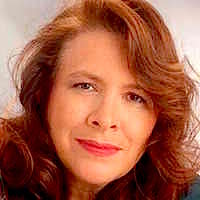
Jean Houston
1937 CE –
Visionary thinker, philosopher, scholar, historian, and author of 26 books; Jean Houston was trained by Teilhard de Chardin, Eleanor Roosevelt, as well as her father who was Bob Hope’s main comedy writer for 35 years, She’s an active consultant to leaders of 25 countries, worked with the United Nations and UNICEF in more than 100 countries, and helped Hillary Clinton write her book, It Takes a Village. She participated in LSD research before it became illegal and is considered one of the main founders of the Human Potential movement. Her friend and mentor Margaret Mead lived with her the last few years before she died and another lifelong friend, Buckminster Fuller said her “mind should be considered a national treasure.”
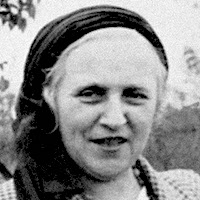
Jeanne de Salzmann (Madame de Salzmann)
1889 – 1990 CE
Follower, preserver, and promoter of Gurdjieff's teachings
Eurhythmics dance teacher, daughter of a famous architect, and married to "former dervish, former Benedictine, former professor of jui-jisu, healer, stage-designer, inventor, and the greatest of living painters," Alexander de Salzmann; Madame de Salzmann met Gurdjieff in 1919, studied with him closely, and continued promoting and organizing his teachings for the next 71 years. She founded, help fund, organized or taught in Gurdjieff Institutes and Foundations in Paris, New York City, London, Caracas, and many smaller groups in many parts of the world.
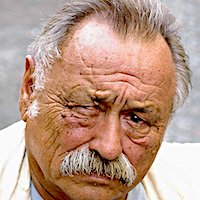
Jim Harrison
1937 – 2016 CE
"untrammeled renegade genius”
Called "an untrammeled renegade genius,” an "American literary icon,” and “a force of nature;” Harrison brought his deep poetic sense to a plethora of novels. An advocate for the benefits of a rural lifestyle, he lived most of his life on a farm in Michigan near where he was born. Most well known for his novels and screenplays like Legend of the Fall, much closer to his heart was his 12+ collections of poetry. Said to have looked like a brick layer, a beer salesman, or a sumo wrestler; he continued the Lao Tzuian, small-is-beautiful lineage of Han Shan, Henry David Thoreau, Willa Cather, and E. F. Schumacher. The superficial details of his life belie the depth of his experience, insight, and wisdom.
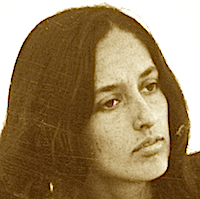
Joan Baez
1941 CE –
Famous but down-to-earth, proud but self-deprecating, a powerful speaker of truth to power; Joan Baez helped launch the civil rights and anti-war movements, social justice on multiple fronts including nonviolence, the environment, and human rights in general. A leader of the dynamic, counterculture social and political change of the sixties, she influenced the direction of American politics and world culture. For 60+ years, recording 30+ albums and songs in 8+ languages; her message of peace, compassion, and justice spread throughout the world both through her own direct example and through her relationship-with impact on people like Bob Dylan, David Harris, and Steve Jobs.

John Blofeld
1913 – 1987 CE
When very young, Blofeld came upon a statue of the Buddha and the experience changed his life redirecting it toward the East where he taught and traveled throughout Hong Kong, Tibet, Mongolia, China, India, and Burma. Many of these experiences were before the Cultural Revolution in China so offer a rare glimpse into that pre-Communist world. While studying and practicing with famous Chan and Vajrayana masters like Hsu Yun and Dudjom Rinpoche, he wrote 18+ books that have had a singular and deep influence bringing Eastern insights and practices to the West.

John Fire Lame Deer
1903 – 1976 CE
Native Americans have a unique perspective on White, American culture. While not sharing the same values and assumptions, they still live surrounded by this foreign way of life. This makes their commentaries and critiques both more accurate and more personal than those based on a more distant point of view. Lame Deer exemplifies this perspective in a vivid and articulate style – his words are well worth taking to heart.
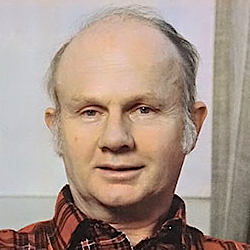
John Holt
1923 – 1985 CE
John Holt (1923-1985)
Excellent teacher for 14 years fired for advocating children’s rights, author of the“Homeschooling Bible,” Teach Your Own, visiting lecturer at U. C. Berkeley and Harvard Graduate School, school system consultant; John Holt came to believe that the US school systems were failing and becoming only places "where children learn to be stupid,” focus on avoiding ridicule rather than learning, become only “teacher-pleasers, and lose their love of discovery. He blamed grades, tests, and ranking students for undermining their confidence, inspiration, and joy; and advocated “unschooling” as a kind of Lao Tzu-ian Wu Wei, natural approach to opening the doors of enthusiasm, freedom, and creativity.
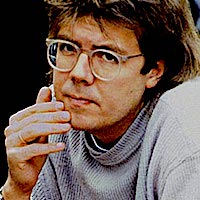
John Hughes
1950 – 2009 CE
Filmmaker, author, and playwright; Hughes made many some of the most enduring and remembered movies including The Breakfast Club, Ferris Bueller's Day Off, and Home Alone.

John Lennon
1940 – 1980 CE
Poet of our age, 20th Century social conscience, inscrutable, uncompromising, brave and outrageous; John Lennon personifies the Lao Tzu lineage and left a lasting and profound impact on the international evolution of consciousness. Uncompromising psychological prophet, he distilled and magnified both our dark side shadows and bright, golden age potentials. Reviled by the Nixon administration and investigated by the FBI, he’s now number 8 on the list of 100 Greatest Britons. Anthem writer for the counterculture and the anti-war movement, reviled by the Nixon administration and investigated by the FBI, he’s now number 8 on the list of 100 Greatest Britons.
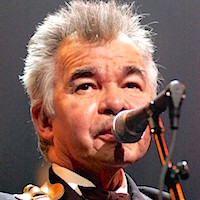
John Prine
1946 CE –
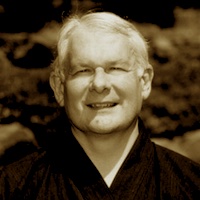
John Stevens
1947 CE –
Zen scholar, Aikido master, and author of many books on Eastern philosophy, John Stevens came up with his own Aikido system which he teaches all over the world.
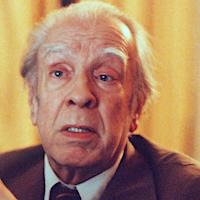
Jorge Luis Borges
1899 – 1986 CE
Literary Explorer of Labyrinthian Dreams, Mirrors, and Mythologies
Argentinian, pioneering poet, translator, librarian, lecturer, and short-story writer; Borges helped begin the magical realism style of literature. A world traveler and completely blind by the time he was 55 years old, his lack of external sight contributed to his vast and colorful worlds of imagination. He wrote many and popularized the style of writing commentaries on imaginary books and biographies of imaginary authors. A harsh critic of Juan Perón and his wife, Evita, he described in detail their private lives of corruption as well as their effective propaganda, "tales and fables made for consumption by dolts." After he died, Peronist leaders wouldn't even accept him as an Argentine.
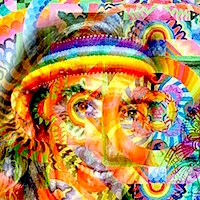
José Argüelles
1939 – 2011 CE
Author, artist, co-originators of the Earth Day events, main organizer of the Harmonic Convergence (the first globally synchronized meditation event), founder of the first Whole Earth Festival in 1970 that continues today, and inventor of the perpetual Dreamspell calendar; Arguelles promoted pluralistic syncretism. Blending ancient and modern wisdom traditions, he tried to inspire the best in people, culture, and politics. Deeply influence by astrologers like Dane Rudhyar and spiritual teachers like Chogyam Trungpa, he worked to promote Teilhard de Chardin’s concept of the noosphere and envisioned a "rainbow bridge" encircling the Earth.
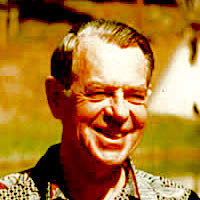
Joseph Campbell
1904 – 1987 CE
Great translator of ancient myth into modern symbols
In his prime, one the fastest half-mile runners in the world, voracious reader, 38-year Sarah Lawrence College professor; Joseph Campbell became a world-expert on mythology and comparative religion. He in part survived the Great Depression by reading 9-12 hours a day. Inspired by Krishnamurti, close friend of John Steinbeck and nutritionist Adelle Davis; he translated and interpreted our ancient and more modern mythologies into language understandable to most people. George Lucas read Campbell’s books and used his ideas in creating the Star Wars and Indiana Jones movies. They were also used in the making of Disney's Lion King, the Matrix, the Batman series, Watership Down, and the Dan Brown books.
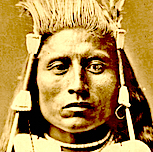
Joseph Medicine Crow
1913 – 2016 CE
Last war chief of the Crow Tribe, historian, first member of his tribe to earn a a master's degree and then 3 honorary doctorates; Joseph Medicine Crow was a hero during World War II using his native American skills to scout and confound German secret service officers. He wrote many books celebrating native culture, teaching important wisdom and skills and lectured at universities until his death at 102. Tribal archivist, founder of a college, and Traditional Circle of Indian Elders & Youth; he was also honored by white culture receiving the Presidential Medal of Freedom, the Bronze Star Medal, and the French Legion of Honor.
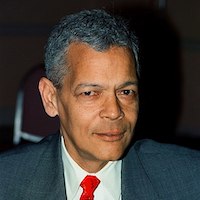
Julian Bond
1940 – 2015 CE
Courageous civil rights leader
Social activist, professor, politician, and leader of the civil rights movement, Julian Bond helped create SNCC (Student Nonviolent Coordinating Committee), the Southern Poverty Law Center, and became a 12-year chairman of the NAACP. He served 20 years in the Georgia legislature and 22 years as a University of Virginia professor. A strong and effective supporter of civil, women's, and gay rights, he received the National Freedom Award, the National Leadership Award, the Spingarn Medal, and 25 honorary degrees.
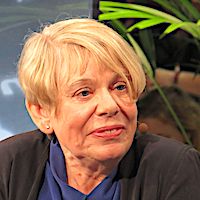
Karen Armstrong
1944 CE –
Champion of the Golden Rule and perennial philosophy
Catholic nun drop-out, mystical Christian, clear-thinking religious historian, and strong proponent of inter-faith dialogue; Karen Armstrong applies her historical work to the polarization and religious fundamentalism of today’s world. Her conclusions led to an emphasis on the importance of realizing the perennial philosophy, the Golden Rule, and critical need for compassion in the modern world. Her 20+ books, many lectures, and articles develop this theme while also attracting criticism for over-looking and trying to justify the negative aspects of religions.
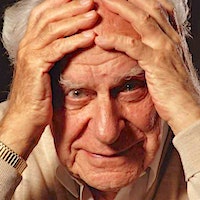
Karl Popper
1902 – 1994 CE
Major Philosopher of Science
Social commentator, philosopher, and academic; Popper grew up in an academic household. His parents were good friends of Freud's sister and his father was a true bibliophile with as many as 14,000 books in his personal library. During his student years, he became very interested and supportive of Marxism until police shot 8 of his unarmed friends. That led him to a life-long support of social liberalism and his creation of an evolved philosophy of science. One of his students—George Soros—became a philanthropic billionaire and now support a think-tank dedicated to Popper's influence. Rather than fixating on just one point of view, he worked to reconcile diverse ideas from socialism, libertarianism, social democracy, traditional liberalism and conservatism.
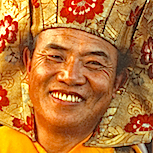
Karmapa XVI ཀརྨ་བཀའ་བརྒྱུད། (Rangjung Rigpe Dorje)
1924 – 1981 CE
“Karmapa” means “Activity of All Buddhas” and the Karmapas were both leaders of the Kagyu tradition and traditional teachers to the Chinese Ming Dynasty Emperors. In this life, it meant leading his people in their escape from Tibet into India, across Asia, and into the West. A teacher to the royal families of Sikkim and Bhutan, his rigorous training began when he was 7 years old and though a religious leader not focused on politics, he helped th Dalai Lama during trips to China and unsuccessful negotiations with Mao and the Chinese government. He continued the Black Crown ceremonies begun by the 5th Karmapa and the Chinese Emperor Yung Lo and in the early 1970’s predicted the Chinese invasion as well as the Western world’s openness and acceptance of Buddhism.
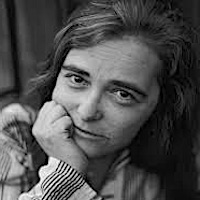
Kate Millett
1934 – 2017 CE
Kate Millett (-2017)
Persuasive feminist, artist, civil/peace/human rights activist; Millett supported anti-psychiatry movements, helped bring about more sexual equality, and the legalization of abortion.
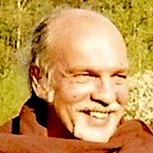
Keith Dowman
1945 CE –
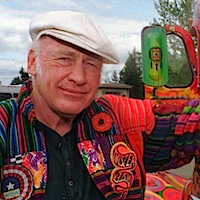
Ken Kesey
1935 – 2001 CE
Countercultural icon, Beat to Hippie era link, Grateful Dead mentor, and founder of the Merry Pranksters; Ken Kesey wrote one of the most influential books of the 20th century, One Flew Over the Cuckoo’s Nest. His life blended with his fiction and became a dramatic and entertaining story in itself as he explored the world of consciousness with the Merry Pranksters, evaded police trying to arrest him for marijuana possession, faked a suicide, went to jail, and finally settled down into a back-to-the-land lifestyle. A continual voice of authentic clarity; his essays, articles, and books brought insight and wisdom to the many cultural inequalities, dilemmas, and challenges of his time.
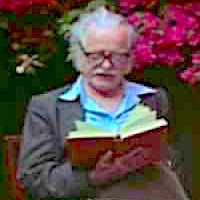
Kenneth Rexroth
1905 – 1982 CE
"Father of the Beats”
A philosophical anarchist, "Father of the Beats,” translator, Chinese scholar and translator; Rexroth introduced Allen Ginsberg to Gary Snyder, mentored Lawrence Ferlinghetti and testified on his behalf in his obscenity trial for publishing Ginsberg’s book, Howl. He appeared as a character in Kerouac’s book Dharma Bums and wrote the article on Literature for the Encyclopedia Britannica. A UC lecturer famously popular with students but cringingly infamous with administrators because of his inflammatory critiques of campus culture, he was a pacifist and conscientious objector during World War II while devotedly helping interred Japanese-Americans. His philosophy condensed into a view of society and culture as a “social lie” maintained to preserve the rich and powerful’s ability to exploit the majority
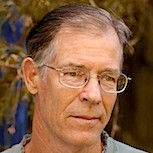
Kim Stanley Robinson
1952 CE –
One of the greatest living science fiction writers with books translated into 24 languages, The Atlantic called him "the gold-standard of realistic, and highly literary, science-fiction writing." Avid backpacker, sometimes stay-at-home-dad, and cohousing member; his 20+ books portray scientists as heroes with an obligation to ensure good uses for their discoveries and stress environmental themes, sustainability, alternatives to capitalism, and social justice. In 2008, Time magazine gave him a “Hero of the Environment” award.
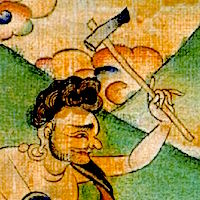
Koṭālipa ཀོ་ཊཱ་ལི་པ། ("The Peasant Guru")
1084 CE –
Mahasiddha #44
Kotalipa ཀོ་ཊཱ་ལི་པ། “The Peasant Guru” (2nd half of eleventh century)

Krishnamurti (Jiddu Krishnamurti)
1895 – 1986 CE
Born into a poor family with 11 children and a mother who died when he was 10, chosen and groomed by the Theosophical Society when he was 14 years old to become the new “World Teacher,” a messianic Maitreya and Cosmic Christ figure; Krishnamurti was showered with financial resources, reverence, publicity and followers. When still young, he renounced this role of guru and mystical belief system, disbanded the organization, and launched a teaching career that emphasized psychological rather than external revolution; going beyond philosophy, nationality, caste, religion; the sense over the words; and freedom from all social, political, or religious conceptual prisons.
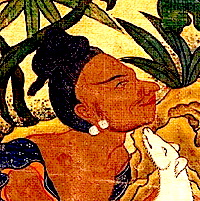
Kukkuripa ཀུ་ཀྐུ་རི་པ། ("The Dog Lover")
915 CE –
Mahasiddha #34
Kukkuripa “The Dog King” ཀུ་ཀྐུ་རི་པ། (10th century CE)
A wandering ascetic, Kukkuripa found and adopted a starving dog brought it back with him to the cave where he lived and meditated. Kukkuripa’s meditation practice took him to pleasurable, psychological god realms but memories of his dog connected him back to the real world where he saw his loyal dog sad, thin, and starving. Spurning the luxury, comfort and extravagance; he returned to the cold, dark, very uncomfortable cave out of compassion for the dog. The dog then became his teacher blending his mind-stream with the deepest insight of all the Buddhas. Naropa sent Marpa to study with him and he became one of Marpa’s most important teachers, famous for his songs of realization, and a “patron saint” for all the downtrodden and oppressed. Mahasiddha #34
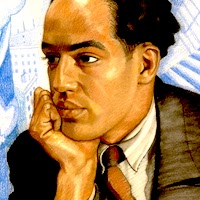
Langston Hughes
1901 – 1967 CE
Pioneering elevator of Black culture
Social activist, people's poet, author, and journalist; Langston Hughes innovated “jazz poetry,” pioneered the cultural renaissance now called “when Harlem was in vogue,” and helped establish the first department of African-American studies. Dramatically representing American culture, both of his paternal great-grandmothers were slaves and both of his paternal great-grandfathers were slave owners. Some of his other ancestors were Native Americans, Speaker of the House Henry Clay, a Jewish slave trader, and white abolitionists. A classmate of Thurgood Marshall and friend of MLK, he challenged racial stereotypes, protested negative social conditions, and elevated African American self-image in the US and around the world. Martin Luther King carefully channeled Hughes’ poems.
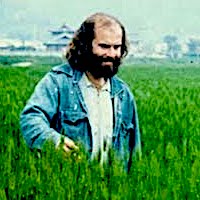
Larry Korn
1943 CE –
Larry became a serious student of Fukuoka and helped translate the seminal book One-Straw Revolution. He writes and gives talks on natural farming, permaculture, sustainable landscaping and similar topics.
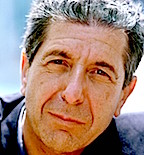
Leonard Cohen
1934 – 2016 CE

Lewis Thomas
1913 – 1993 CE
Gestaltist of science and art
Innovative blender of poetry with medicine and scientific thought, Thomas broke out of traditional thought patterns to advance more insightful and beneficial approaches to modern psychological, social, and political problems. An early advocate for an ecological approach, he used etymology as a way of creating a holistic understanding of the cultural challenges brought about by new discoveries. A poet himself as well as physician, educator, researcher, and policy advisor; his influence continues through the Lewis Thomas Prize given each year by The Rockefeller University as well as his frequently quoted insights
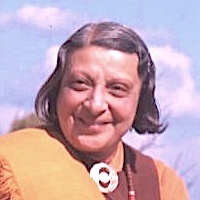
Li Gotami Govinda (Ratti Petit)
1906 – 1988 CE
Pioneering, fearless, artistic woman of wisdom
Photographer, painter, writer, composer, fearless traveler, and wise woman; Li Gotami was born into a wealthy Zoroastrian family in India, studied painting in Europe, became a close student of Abanindranath Tagore, and married Anagarika Govinda. A passionate traveler, she quickly broke out from the narrow boundaries expected of traditional Indian women. For many years, the couple lived near Kasar Devi a bohemian Mecca for their many friends—spiritual seekers like Walter Evans-Wentz, John Blofeld, Allen Ginsberg, Gary Snyder, Timothy Leary, Ralph Metzner, R. D. Laing, and Robert Thurman. Their many expeditions to Tibet included a perilous one to Tsaparang, the ancient capital Guge considered by some historians as the origin location of the Shambhala legends. Here she took photographs, did sketches, and made fresco tracings which preserve a record of how Tibet once was before the devastation of the Chinese invasion and extensive desecrations during the Cultural Revolution. In later life and in ill health, the couple moved to California where they were supported by Alan Watts and Suzuki Roshi's San Francisco Zen Center.

Lin Mo Niang 林默娘
970 CE –
Lin Mo Niang (silent girl) 林默娘 akaMa Zhou, Mazu, Matsu, Tian Hou (c. 970)
"Empress of Heaven,”patron of seafarers, Confucian, Taoist and Buddhist adept, rainmaker, and Fujianese shamaness from an impoverished and uneducated fishing village where no one could read; Lin Mo Niang lived during a time of mass migrations from China’s north when refugees blended their culture with her local one. Most popular today in Taiwan but banned in Mainland China, her following called Mazuism has over 1500 temples in 26 countries, and statures as high as 139’ (42.3 meters). Equated with Guan
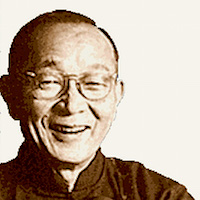
Lín Yǔtáng 林語堂
1895 – 1976 CE
One of the most influential writers of his time, translator, linguist, journalist, inventor, and nominated for the Nobel Prize in Literature; Lin Yutang worked hard to bridge the divides between East and West. He invented and built a Chinese typewriter, romanized the Chinese language, helped publish a Chinese-English dictionary, and brought Chinese culture and wisdom into the Western world’s awareness. Many of his classic Chinese translations became bestsellers helping to popularize Chinese philosophy. A prolific writer, he published magazines, wrote innumerable essays, and his books include more than 14 in Chinese and more than 30 in English. Born into a Christian minister’s family, he later studied and followed Confucianism, Taoism, and Buddhism but returned to a Christian path in his 60’s.
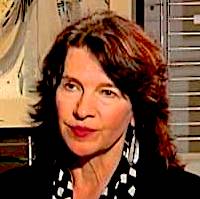
Louise Erdrich
1954 CE –
Chippewa wisdom-storyteller, poet, writer of 15 best-selling novels, Pulitzer Prize finalist, and World Fantasy Award winner; Louise was part of the first class of women admitted to Dartmouth College. A powerful voice for both Native American wisdom and rights, she refused an honorary doctorate from the University of North Dakota because of their Fighting Sioux mascot, wrote a novel about an historical lynching of four Native people based on trumped-up charges, hosts writers' workshops on the Turtle Mountain Indian Reservation, started and runs a “teaching bookstore” that also sells Native American jewelry, art and traditional medicines.
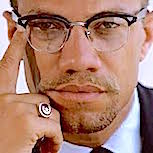
Malcolm X الحاجّ مالك الشباز
1925 – 1965 CE
One of the most influential African Americans in all history, human rights activist, Sunni Muslim minister, the main inspiration behind “Black is Beautiful” sub-cultural esteem building, reconnection to African heritage, and the Black Power movement; Malcolm X grew up an orphan and was soon in jail where he joined the Nation of Islam and soon became its’ public face and one of its’ main leaders. He helped many good causes including a drug rehabilitation program but became disillusioned with the group’s black supremacist and anti-integration stand. He opposed both white and black racism making him a target for both groups leading to his assassination by Nation of Islam extremists.
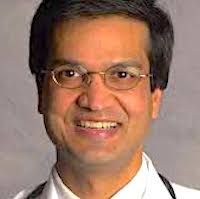
Manoj Jain
1963 CE –
Author, infectious disease doctor, and local politician; Manoj Jain has taken a lead in the usa COVID-19 response. He writes articles for publications like the New York Times, Washington Post, NPR, and The Huffington Post as well as books on fundamentalism, non-violence, infectious diseases, and a biography on the Jain Saint, Mahavira.
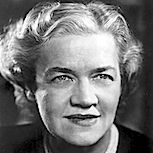
Margaret Chase Smith
1897 – 1995 CE
Called by Khrushchev "the devil in disguise of a woman,” Chase was the first woman to serve in both houses of the US Congress, as chair of the Senate Republican Conference, and the first to be placed in nomination for the presidency. Though an independent Republican, she deeply respected John Kennedy, voted against Nixon proposals, and led the opposition against demagogue Joe McCarthy. She strongly supported civil rights, Medicare, increased educational funding, and the NASA administrator said without here they wouldn’t have been able to land a man on the Moon.
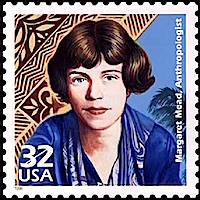
Margaret Mead
1901 – 1978 CE
Cultural anthropologist, creator and exemplar of the Jewish mother stereotype, feminist movement cornerstone, husband of Gregory Bateson, mother of Mary Catherine Bateson; Margaret challenged prevailing views about race and intelligence, about traditional sexual mores, about the false identifications that seemingly separate human unity by fixating on visible but insignificant cultural displays. Her work significantly advanced the evolution of a one-world vision and the importance of us all becoming “citizens of the world.” President Jimmy Carter awarded her the Presidential Medal of Freedom in 1979.
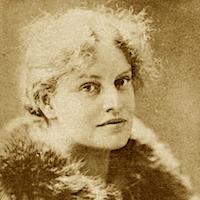
Marie Bonaparte
1882
Princess, psychoanalyst, sex scientist
Princess of Greece and Denmark, author, psychoanalyst, granddaughter of Napoleon’s younger brother and the main Monte Carlo real-estate developer; Marie Bonaparte used her wealth to help Freud escape from Nazi Germany as well as significantly increase the popularity of psychoanalysis. Because of multiple phobias and hypochondria when she was young, she spent much of her time alone reading, studying, and working with the scientific method. This research continued after her marriage and multiple affairs failed to give her orgasms and she did many studies that finally brought her to Freud and his famous comment to her, "The great question that has never been answered and which I have not yet been able to answer, despite my thirty years of research into the feminine soul, is 'What does a woman want?’”. A practicing psychoanalyst, she founded the French Institute of Psychoanalysis, translated Freud’s books into French, wrote several of her own on psychiatry as well as a biography and commentary on Edgar Allan Poe.
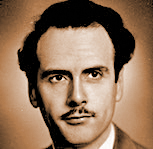
Marshall McLuhan
1911 – 1980 CE
The most controversial and most publicized 20th century English professor, philosopher, founding father of media theory study, visionary “global village” describer who 30 years before it was invented predicted the WWW and coined the term "surfing;” Marshall McLuhan was a popular figure in the 60’s but soon forgotten until the internet proved his predictions and confirmed the ever-increasing cultural influence of technology on culture, business, psychology, and politics. Inspired by G. K. Chesterton to become a Roman Catholic, he credited the Virgin Mary for giving him intellectual guidance. Warning against the dangers of ignoring the consequences of new inventions, his deep historical insights into how new technologies in the past influenced culture give a strong foundation for his analysis of current and soon-to-come technology leading to a “global theater,” a collective identity, "electronic interdependence" ending individualistic print culture, and the creation of a new, global, and ”tribal base.”
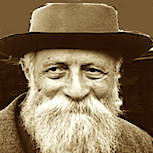
Martin Buber מרטין בובר
1878 – 1965 CE
Influential philosopher, educator, and political activist; Buber challenged materialistic thinking and promoted a deep interpersonal respect and appreciation. Like most of the people in these biographies, he warned against belief systems and advocated a conceptless-mind and open-hearted experience of the world. He inspired Jewish cultural renewal, developed an educational model based on the whole person, and supported a bi-national Israeli-Palestinian state. Related to 16th century rabbi Meir Katzenellenbogen, Helena Rubinstein and Karl Marx; he challenged Hegel, Kant, Kierkegaard and Nietzsche. Not considering Jewish culture or religion necessary, he was criticized by Jewish scholars for this as well as emphasizing direct experience above Jewish law.
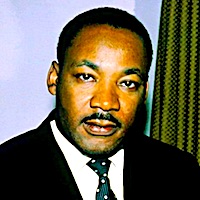
Martin Luther King Jr.
1929 – 1968 CE
Leading world influence for equality, peace, non-violence, and poverty alleviation
(1929–1968)
Baptist minister, one the the 20th century’s most admired people, “the conscience of his generation,” most famous civil rights leader, and known for one of history’s most influential speeches; Martin Luther King became one of the world’s most effective forces for equality, peace, and poverty alleviation. An enemy of J. Edgar Hoover, investigated by the FBI, and assassinated; his life proved the power and unstoppability of a good and pure heart. Practicing Gandhian nonviolence and Thoreauvian civil disobedience, he won the Nobel Peace Prize, the Presidential Medal of Freedom, the Congressional Gold Medal, 50 honorary university degrees; and today, a national holiday and hundreds of US streets are named in his honor.
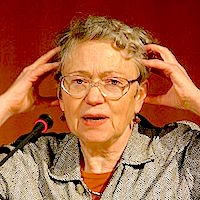
Mary Catherine Bateson
1939 CE –
“ Dr. Spock’s first baby,” daughter of Margaret Mead and Gregory Bateson, and after having “the best-documented childhood in the United States,” Mary carried on her parents’ intellectual and anthropological tradition writing and teachings in places like Harvard, George Mason University, and Amherst as well as leading organizations like the Institute for Intercultural Studies in New York. When a freshman in college after attending one of her mother’s lectures with a boyfriend, she lamented the possibility of ever having a good marriage after her mother and father’s example; she agreed to an engagement and wound up married to that same boyfriend for over 50 years.
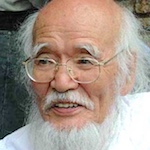
Masanobu Fukuoka 福岡 正信
1913 – 2008 CE
Farmer and philosopher, giant in the development of organic farming, sustainable development, guerrilla gardening and permaculture; Fukuoka founded “No-Till Natural Farming.” Trained as a microbiologist and agricultural scientist, he challenged Western agricultural practices both on his farms, in worldwide lectures, and in his books applying Taoist approaches like non-intervention and “Do-Nothing farming.” He worked with the UN to combat desertification, helped the Green Gulch Zen Center and Lundberg Family Farms, did projects in Africa, India, the Far East, Europe and South America. A deep observer of nature, he went beyond farming techniques to inspiring the natural food and natural lifestyle movements.
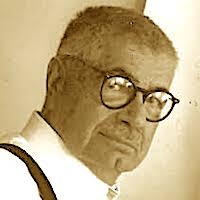
Matthew J. Bruccoli
1931 – 2008 CE
Professor, author, leading expert on F. Scott Fitzgerald; Bruccoli also wrote about other famous authors and helped write and publish the Dictionary of Literary Biography—a 400-volume biographical reference on over12,000 authors.
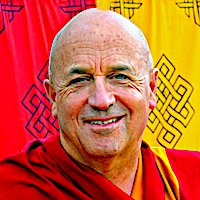
Matthieu Ricard माथ्यु रिका
1946 CE –
"The happiest person in the world”
Buddhist monk, Ph.D. in molecular genetics, son of a famous French philosopher, board member of the Mind and Life Institute, author and receiver of the French National Order of Merit for his humanitarian work; Matthieu Ricard is described as the "happiest person in the world.” A close student and attendant of Dilgo Khyentse Rinpoche, he has dedicated his life to fulfilling Rinpoche’s vision.
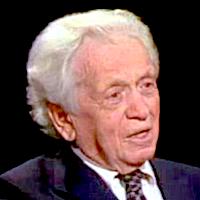
Max Lerner (Maxwell Alan)
1902 – 1992 CE
Journalist, professor, humanist, and controversial cultural commentator; Lerner supported Roosevelt’s New deal, fought against racial discrimination, and gained a high place on Nixon’s hate list. He mainly supported progressive causes but went along with the internment of Japanese Americans during World War II and backed Ronald Reagan. Untied to unthinking political dogma, he was considered a controversial liberal during the 50’s and 60’s but more conservative during the 80’s. A close friend of Elizabeth Taylor, he worked on antiwar efforts, taught at Harvard, Sarah Lawrence, Wellesley, Brandeis, and wrote for the New York Post, the New Republic, The Atlantic, Saturday Review, and many other publications. He applied his dedication to personal responsibility in a struggle with lymphatic cancer which he won and described in a book, Wrestling with the Angel.
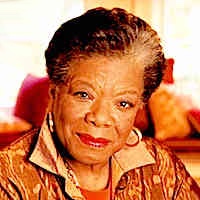
Maya Angelou
1928 – 2014 CE
From a background that included working as a nightclub dancer, fry cook and sex worker; Angelou climbed to becoming the first poet to recite for a Presidential inauguration since Robert Frost. She worked directly with Martin Luther King Jr., Malcolm X, and other Civil Rights leaders, received 50+ honorary degrees, dozens of literary awards, and the Presidential Medal of Freedom. An important spokesperson for women and black people, her books are both subject to bans in libraries as well as being extensively used in universities around the world. “America's most visible black woman autobiographer,” her books and poetry both defended and appreciated Black culture, became a powerful influence on modern hip-hop music, and helped further gender and racial understanding.
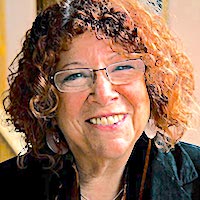
Meg Wheatley
1944 CE –
Bringing ancient wisdom into the modern world.
Global citizen, author, and management consultant who brought contemplation, systems thinking, chaos theory, and a natural science approach into the business world; Wheatley has had a powerful influence over organizations from schools to churches, from non-profits to governments, from major corporation to small, developing country start-ups. Working on every inhabited continent, more than 40 countries, and with every type of organization; she’s helped and inspired fruitful changes creating better organizations, societies, and work-place interactions. A student of Pema Chödrön and Namkhai Norbu, she’s one of the most interesting examples of bringing ancient wisdom into the modern world.
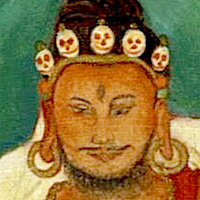
Mekopa མེ་ཀོ་པ། ("Guru Dread-Stare")
1050 CE –
Mahasiddha #43
Mekopa, མེ་ཀོ་པ། Guru Dread-Stare (11th century)
Always cheerful and kind Bengali food merchant taken as a student by a yogin customer, Mekopa saw into the vastness of his own mind, the uselessness of chasing desires, and harmfulness of action based on duality. His realization led him far beyond the limits of status quo, conventional social standards and behavior; into a lifestyle unbound by concern for people’s opinion, wandering about a cremation ground “like a wild animal” and into towns like a mad saint with dreadful, staring eyes. Mahasiddha #43
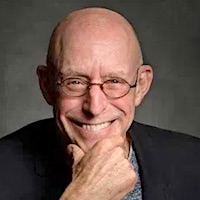
Michael Pollan
1955 CE –
Champion for Sustainable Agriculture
Journalist, professor, author, and social activist; Michael Pollan's in-depth and yet intriguing books and articles challenge many of our modern agricultural practices. His historical perspective on agribusiness and how it effects our health, environment, culture, and wellbeing clarifies the problems and gives clear directions toward solutions. He criticized and explained the problems with factory farming, GMOs, and the over-growing of corn effectively enough to provoke a fierce response from the concerned interest groups.
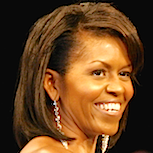
Michelle Obama
1964 CE –
An inspiring icon for black women, women and men of all races; Michelle Obama exemplifies quiet courage, dignity, and the deep “Te” described in the Tao Te Ching. Descendant of slaves, daughter of the working class, sister of American educational opportunities, and wife to good government; her influence on American culture is subtle but profound and goes far beyond her focus on poverty alleviation, LGBT rights, promoting good nutrition and healthy life style. Fashion icon on the cover of Vogue magazine and first First Lady to announce the winner of an Oscar; she also advocated for military families. Touring the world, she repaired and uplifted America’s image probably more than anyone since Benjamin Franklin.
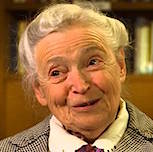
Mildred Dresselhaus (“the Queen of Carbon”)
1930 – 2017 CE
Growing up impoverished in a dangerous, multiracial neighborhood where teachers in the schools spent most of their time disciplining with little time for teaching; Dresselhausbecame M.I.T.’s first woman full professor, organized their first Women’s Forum, worked hard to encourage more women in science, and now 22% of M.I.T.’s faculty are women. Winning numerous awards including the Presidential Medal of Freedom and a pioneering researcher into the many uses of “buckyball” carbon atoms, she wrote over 1700 scientific papers, co-wrote 8 scientific books, helped discover many new scientific advancements including her research that developed the nonotube - something as strong as steel but one 10,000th the width of a human hair.
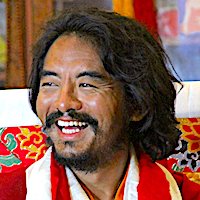
Mingyur Rinpoche
1975 CE –
Modern-day Mahasiddha
Major Dzogchen and Mahamudra lineage holder, descendant of the Tibetan kings Songtsen Gampo and Trisong Deutsen, abbot of Sherab Ling, and builder of Tergar Monastery; Mngyur Rinpoche left his elevated position in the middle of a 2011 night alone and taking nothing with him. For 4.5 years, he lived as an unknown yogi doing a “wandering retreat” in the Himalayas. He now has centers on 5 continents, teaches extensively, and continues his studies not only of Buddhist philosophy but also Western science and psychology.
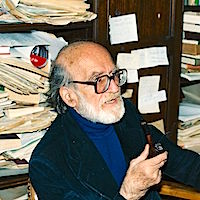
Mircea Eliade
1907 – 1986 CE
Theologian of the Sacred, philosopher, professor, historian of religion, journalist who “never read newspapers,” and novel writer; Eliade became one of the most influential interpreters of religious experience. As a very conservative youth, he supported far right ideologies; but, during his later life, this support shifted toward the non-Marxist Left and the hippie youth movement. Although an admirer of Gandhi and non-violence, he was accused of antisemitism and support of fascism. He was identified with far-right politics but fired from a University position because of an attack by the far-right press. His theories and descriptions of religious experience (in particular hierophanies and the “Eternal Return”) established paradigms for religious studies still accepted today.
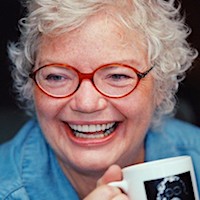
Molly Ivins
1944 – 2007 CE
Biting but humorous social commentator
Political commentator, witty newspaper columnists, and author; Molly Ivins won many awards but the ones she was most proud of included being banned from the Texas A&M campus and having the Minneapolis police force naming their mascot pig named after her.
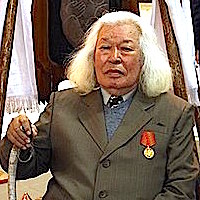
Mongush Kenin-Lopsan Монгуш Кенин-Лопсан
1925 CE –
Head shaman in the Russian Republic, respected historian, archaeologist, writer of more than 50 books, poet, and cultural healer; Kenin-Lopsan was born into a family of nomads and shamans but studied in universities and received Master's and doctoral degrees. He won many literary prizes but was persecuted and imprisoned during the Soviet Union era. When shamanism was recognized by the Russian government and their rituals no longer banned, he helped this tradition re-emerge and grow.
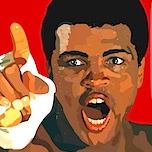
Muhammad Ali (Cassius Clay)
1942 – 2016 CE
Many easy accolades for Mohammad Ali but maybe the best is “A Muslim who put friendship and other people over dogma and belief.” A true citizen of the world, musician, poet, actor, political commentator, Civil Rights leader, counterculture icon, one of the most famous and celebrated sports figures of all time; he was arrested, convicted of draft evasion, mired in a Supreme Court trial but still became the only three-time lineal world heavyweight champion and the only boxer to be named Fighter of the Year five times. Graduating high school # 376 in a class of 391, he received an honorary doctorate from Princeton University. He actively supported Native American rights, the Palestinians, Israelis, poverty alleviation in Africa, peace in Iraq, and numerous philanthropic projects.
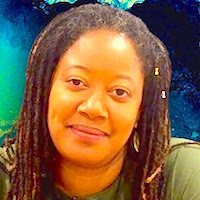
N. K. Jemisin
1972 CE –
Award winning speculative fiction writer, bimonthly column writer for The New York Times, fearless blogger, psychologist, and first black writer to win a Best Novel Hugo award; Jemisin helps mythologize current event themes in her fiction and carries these messages into the political and social worlds. Though arguably a stretch to include her in our Women of Wisdom Lineage, she’s still young and obviously on the way in that direction. Pointing out that 10% of the SFWA (Science Fiction and Fantasy Writers of America) members voted for alt-right writer Theodore Beale (Vox Day), she called him "a self-described misogynist, racist, anti-Semite, and a few other flavors of asshole” which led to him calling her an “ignorant savage" and his expulsion from the SFWA.
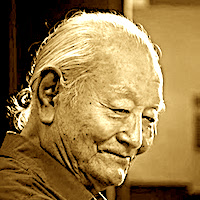
Namkhai Norbu ཆོས་རྒྱལ་ནམ་མཁའི་ནོར་བུ་
1938 – 2018 CE
Dzogchen Master
Great Dzogchen master, leading authority on Tibetan culture, and student of some of the most important, modern Tibetan masters; Namkhai Norbu studied and taught not only Buddhism but also history, medicine, and literature. Invited to teach at a university in Italy by the famous Tibetologist Giuseppe Tucci, he acted as a professor there for 28 years. Interest in his teachings grew and he established centers in Italy, China, Venezuela, the United States, Mexico, Argentina, Australia, Romania, Russia, Spain, and the Ukraine. He also founded a non-profit that works to increase the educational and medical resources in Tibet.
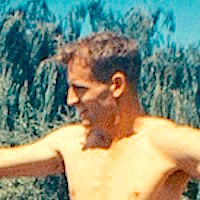
Neal Cassady
1926 – 1968 CE
Beat Generation generator, one of the most significant literary and pop-culture figures of the 20th century, the most famous Colorado native, pioneering stream-of-consciousness writer, reason for Kerouac and Ginsberg moving to Denver, (in)famous lover, inspiration for Bob Dylan and much of the 1960’s soundtrack; Neal Cassady is a little-known but deep influence on the best of today’s culture. Homeless son of an itinerant, alcoholic barber; stealer of more cars than any other person in Colorado’s history (500+ between ages 14 to 21); Cassady is immortalized in Grateful Dead songs, as Dean Moriarty in Kerouac’s On the Road, Cody Pomeray in Dharma Bums, the mad driver of Further in Wolfe’s Electric Kool-Aid Acid Test and most likely Randle McMurphy in Ken Kesey's novel, One Flew Over the Cuckoo's Nest.
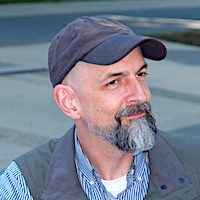
Neal Stephenson (Stephen Bury)
1959 CE –
Speculative futurist and cultural social commentator
Futurist, author, technology/culture/social commentator; Stephenson's writings span the range from speculative to historical fiction, from critiques of technology to mystery novels. He brings mathematics, science, and history into his novels; has worked on scientific spacecraft systems and developed innovative, collaborative writing projects. Seen at the time as "futuristic," many of his cultural descriptions and imagined technologies—self-learning nanotechnology, dynabooks, cyber cities—have become common place and well-known today.
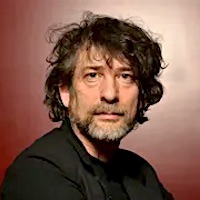
Neil Gaiman
1960 CE –
Myth-transmitting creative maelstrom
Creative cultural hero, inventive myth-making continuation, author and screen-writer par excellence; Neil Gaiman may be one of the most effective transmitters of ancient myths, symbolism and stories into modern culture. From comic books to television, from books to movies, from Twitter to FaceBook, his understanding of the basic dilemmas and opportunities facing our evolutionary potential seeps inextricably into contemporary zeitgeist. Winner of the Hugo, Bram Stoker, Nebula, Bram Stoker Newbery, Carnegie, and the British National Book Awards; his influence is huge and still growing.
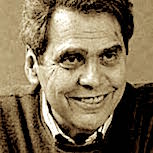
Neil Postman
1931 – 2003 CE
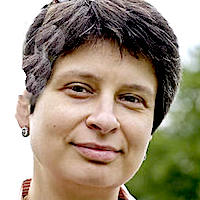
Nina Lvovna Khrushcheva Нина Львовна Хрущёва
1964 CE –
The adopted granddaughter of Nikita Khrushchev and daughter of his biological granddaughter, Nina grew up in the midst of an intense political environment witnessing the rise and fall of Soviet Russia. She saw first hand how Khrushchev was vilified in both Russia and the USA while repudiating Stalin’s legacy of terror and totalitarianism which killed between 30 and 60 million people, releasing millions of Stalin’s victims from gulags, and spearheading reforms that allowed greater political, personal, and artistic freedoms. Now an American Professor of International Affairs, Senior Fellow of the World Policy Institute, and a Contributing Editor to Project Syndicate; she shares her insightful political commentaries in Newsweek, The New York Times, The Wall Street Journal, The Financial Times and in many other publications and boo
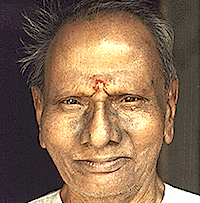
Nisargadatta Maharaj
1897 – 1981 CE
Householder guru of non-duality
Nisargadatta Maharaj (1897 – 1981)
An Indian Guru of nondualism from a householder lineage; Nasargadatta began in life by opening a small store that mainly sold beedis (leaf-rolled cigarettes). He soon expanded this into a string of eight retail shops, married, and had 4 children. After meeting a guru and practicing a sadhana, he traveled across India alone until he realized that "nothing was wrong anymore,” returned home and stayed there maintaining his business and teaching. His exposure greatly expanded when North American and European followers discovered him but he remained unseduced by materialism and continued living in the most simple and unassuming way.

Noam Chomsky
1928 CE –
A Jew now banned from Israel but awarded World Peace awards for the promotion of human rights; vilified by corporate interests and the mainstream press but given honorary degrees from over 50 colleges and universities; arrested multiple times for his political activism but one of the single most cited scholars in academic circles; on Nixon's Enemies List and illegally watched by the CIA for many years but considered by progressives “a figure of enlightenment and inspiration;” called by the far right “a hard-boiled anti-American monomaniac” but a foundational pioneer in the fields of cognitive science, linguistic theory, computer science, and evolutionary psychology; Chomsky may be the most important intellectuals alive today.
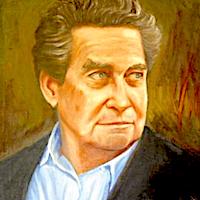
Octavio Paz
1914 – 1998 CE
Persuasive poet and convincing social commentator
Poet, diplomat, penetrating social commentator, one of the most important 20th century writers, and one of the greatest Hispanic poets; Octavio Paz dissolved his cultural prejudices and became a true world citizen. After traveling extensively in Asia, Europe, and the USA, he became Mexico’s ambassador to India. He criticized his countrymen as “instinctive nihilists who hide behind masks of solitude and ceremoniousness" and resigned from his Mexican diplomatic service when the government massacred students in 1968. Famous for his remarkable poetry that won a Nobel Prize for Literature, he balanced this kind of writing with influential political commentaries in popular magazines he founded.

Oren Lyons
1930 CE –
Seneca and Iroquois Nations Council of Chiefs Faithkeeper, legendary athlete inducted into the Lacrosse Hall of Fame, artist, author, and international peace keeper; Oren Lyons’ life work expanded from promoting his own tribes’ welfare to indigenous lifeways and Native American Rights in general to human rights and economic development for indigenous people all over the world including working for Maori rights in New Zealand, yearly meetings in Geneva for the UN Human Rights Commission, and UNESCO’s World Conference Against Racism. A strong voice for the environment, sustainable development, a more sane world, and for the sacred over materialism; he represents native peoples in many forums throughout the world.
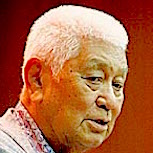
Papa Henry Auwae
1907 – 2001 CE
Although learning herbal knowledge from his from his 107-year-old great-great-grandmother and understanding the use of over 2,500 herbs, how to harvest and ways to use them; Papa Henry Auwae – deeply steeped in Hawaiian culture and spirituality – taught that all true healing is 80 percent spiritual and must treat the whole person. Growing up in Hawaiian schools where he was punished for speaking Hawaiian, he graduated from the University of Hawaii, became a healer for over 40 years treating everything from AIDS to broken bones but refused to take money for his services.
Patricia Buckley Ebrey
1947 CE –
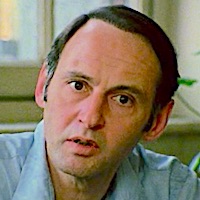
Paul Avrich
1931 – 2006 CE
(1931–2006)
Historian, professor, author; Avrich specialized in 19th and early 20th century anarchism. He wrote 10 books (several nominated for Pulitzer Prizes), supported anarchism's major figures, and named his cats after Bakunin and Kropotkin.
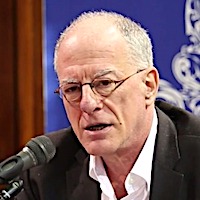
Paul Berman
1949 CE –
Insightful political commentator and expert on totalitarianism
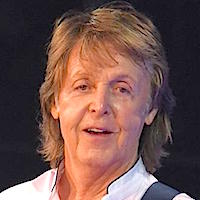
Paul McCartney (Sir James Paul McCartney)
1942 CE –
Described by Ringo star as "pleasantly insincere" and by John Lennon as “all pizza and fairytales,” McCartney sits on the more conservative and conventional side of the art world though this may have helped him avoid the early death pattern so common with famous rock stars. Knighted for his contribution to music and along with Lennon the most celebrated singer-songwriter of our times; McCartney wrote the best-selling Beatles single, "Hey Jude,” one of the most covered songs in modern music’s history, “Yesterday” (2,200+ versions), and wrote or co-wrote music for 60 gold records and 32 songs that became number one hits selling over 100 million singles and 100 million albums. Not stuck in only fame and fortune, he’s worked hard promoting animal rights, poverty alleviation, vegetarianism, and land mine charities.
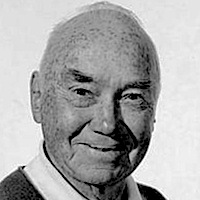
Paul Reps
1895 – 1990 CE
Author, artist, and early Western haiku poet; Paul Reps became a major welcoming influence for Zen coming to America
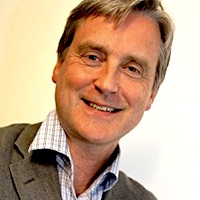
Paul Seabright
1958 CE –
Author and British Professor of Economics
Each generation needs a champion of ancient wisdom, a translator of insight into modern terms, and someone to continue the axial-age discussions. Paul Seabright looks likely to evolve in these directions. A philosopher and professor of economics in France, India, and the UK; he consults for governments, corporations, and organizations like the World Bank, the United Nations, and the European Commission. His current research focuses on competition policy issues, network economics, and behavioral economics—the integration of evolutionary biology into the development of economic institutions.
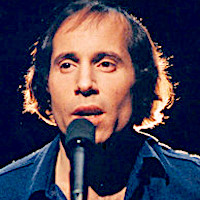
Paul Simon
1941 CE –
Prolific planter of musical, cultural wisdom seeds
One of the world’s most famous singer-songwriters since 1956 and still going strong, Paul Simon’s poetry and music has embedded inner space modules of wisdom in world culture and consciousness. His honors include 16 Grammys, 3 Albums of the Year, a spot on Time magazine’s "100 People Who Shaped the World,” and being listed on both Rolling Stone’s 100 Greatest Guitarists and 100 Greatest Songwriters of All Time. A strong advocate of music education for children, he has mentored many successful musicians and supported the non-profit Children's Health Project, The Children's Health Fund, the Turkana Basin Institute, and Little Kids Rock that provides free musical instruments and lessons for children in public schools. Through all the ups and downs of his careers, he’s continually recreated both himself and his music keeping his creative edge sharp and his social consciousness clear.

Paulo Lugari
1944 CE –
Paulo Lugari (1944 - )
Regenerator of a rain forest in a rain-leached, desiccated area without trees, creator of a village (Gaviotas) in a nearly uninhabited area later called by the United Nations “a model of sustainable development,” and known as“the inventor of the world;” Paulo Lugari represents one of the most inspiring stories of human goodness and potential. In 1971 his group of idealistic, challenge-seeking engineers and visionaries moved to a desolate, semi-populated region of Colombia, SA. Today, that once barren land has regenerated a rain forest with millions of trees, sprouted 247 plant species, and established an aquifer that supplies water to over 45,000 people. One of the most hopeful environmental success stories ever told, Gaviotans successfully built a prototype of sustainability in an area ravaged by political terror. Every family has free housing, community meals, and schooling. There are no weapons, no police, no jail or rules, yet they are an oasis of peace.

Pearl Buck
1892 – 1973 CE
Growing up and living in China as the daughter and wife of Christian missionaries, Pearl Buck described their arrogance and manipulation arguing against the benefit of missionaries and an institutional church. Denounced in China during the cultural revolution and prevented from visiting with Richard Nixon, she wrote 60+ books, won a Pulitzer, and became the first American woman to win the Nobel Prize for Literature. Long before they became popular or safe positions, she publicly challenged gender and racial discrimination while founding the first interracial and international adoption agency that placed over 5000 “unadoptable” children.
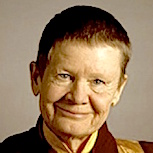
Pema Chödrön (Deirdre Blomfield-Brown)
1936 CE –
First American Vajrayana nun
Growing up on a New Jersey farm, studying elementary education at UC Berkeley in the 1950’s, and having a family life with two divorces and two children; Pema Chodrin came to Chögyam Trungpa and Tibetan Buddhism from a status-quo American background. From this ground, she became the first fully ordained American nun in the Vajrayana tradition, the first director of the first Tibetan Buddhist monastery in North America, and one of the most respected teachers in today’s world. Her 16 books, regular teaching and practice seminars continue to spread deep wisdom and authentic compassion.
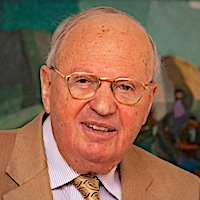
Peter Bien
1930 CE –
Although in his 90's, Bien continues in his excellent work of translating Greek writers particular Nikos Kazantakis—into contemporary and understandable English. With a distinguished academic background, became a professor of Comparative Literature for 36 years at Dartmouth College where he was known as the "cat-in-the-hat professor" because his position was endowed by Dr. Seuss.
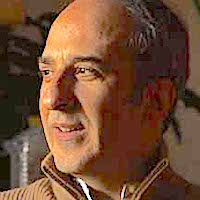
Peter Kingsley
1953 CE –
Sufi, mystic, author, philosopher, scholar; Kingsley describes a "flowering of consciousness” and the birth/beginning of western civilization during the pre-Socratic Greek period based on the influence of Parmenides and Empedocles. He describes Parmenides' nameless goddess who uses words as esoteric seeds and paradoxical divine logic to reveal unity and reality’s oneness. These seminal Orphic and Pythagorean views later distorted by Plato and Aristotle show remarkable similarities to early Buddhist, Taoist, and shamanistic traditions; modern Vedanta, Zen, and Dzogchen.
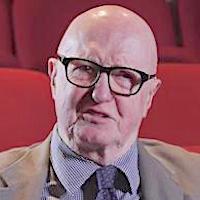
Philip French
1933 – 2015 CE
Film critic, radio producer, and journalist; French regularly wrote columns in The Observer for 50 years. Described as "an inspiration to an entire generation of film critics," his comments became almost legendary and it's estimated that he saw over 14,000 films.
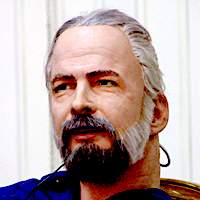
Philip K. Dick
1928 – 1982 CE
Legendary consciousness provocateur
The most influential science fiction writer of all time, garage philosopher/theologian, autodidact, the "Shakespeare of Science Fiction,” in his own words “a flipped-out freak,” and legendary consciousness provocateur; Dick was a serious student of the pre-Socratic philosophers, Plato, Meister Eckhart, Spinoza, Hegel, and Schopenhauer. He wrote 44+ novels, 120+ short stories and inspired most of the best sf films including Blade Runner, Total Recall, Minority Report, The Matrix, Being John Malkovich, Adaptation, Eternal Sunshine of the Spotless Mind, The Truman Show, Gattaca, 12 Monkeys, Fight Club, Vanilla Sky, Pi, Inception, and countless more. Devoted to his writing, during the 1950’s he said "We couldn't even pay the late fees on a library book" and during the 1960’s—because of an anti-Vietnam war pledge—the IRS confiscated his car. Always loved in the science fiction world but with a ”C” in Written Composition and ignored by mainstream literature; 25 years after his death, he became the first science fiction writer to be included in The Library of America series and his book Ubik was listed as one of the 100 greatest English language novels.
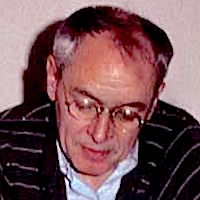
R. D. Laing
1927 – 1989 CE
Shaman, “acid Marxist,” counter-culture high priest, “Elvis of the psyche,” British counterpart to Timothy Leary, friend of Chögyam Trungpa, and psychiatrist to Sean Connery, the Beatles, Jim Morrison, and many other famous 1960’s icons; R. D. Laing was also a serious scholar who challenged orthodox psychology denouncing electro shock, chemical therapy, and the dehumanizing incarceration of the mentally ill. He developed Bateson’s double-bind theory, promoted safe haven centers, and the community-care model that has become today’s norm. Inspired by the Mahasiddha tradition of transmutation and growing the positive in perceived negative, he inspired techniques exemplified by the time he treated a patient with catatonic immobility by helping her get a job as an artist’s model.
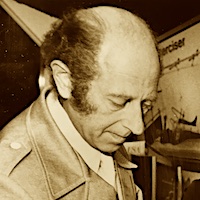
Ralph Alan Dale
1920 – 2006 CE
Translator, author, visionary
(1920-2006)
Conductor, composer, clinician, acupuncturist, researcher and prolific writer of over 70 books and videos; Dale translated the Tao Te Ching into verse and wrote a deeply thought-through chapter-by-chapter commentary applying Lao Tzu's wisdom to modern day challenges. In his profession, his writing, and in his life; he seems to both understand the deeper Tao Te Ching messages as well as develop insightful ways of incorporating this wisdom into solutions for modern political, cultural, and social challenges. While not minimizing modern confusions, he stays positive and optimistic, predicts new evolutionary cultural realizations, the actualization of Taoist visions of wholeness and harmony.

Reb Zalman
1924 – 2014 CE
Major founder and proponent of the Jewish Renewal movement and writer of the first English book on Jewish meditation; Rabbi Zalman when young was interned in Vichy French detention camps and escaped the Nazi advance in Europe by coming to America. In 1962 after experimenting with LSD, he left his more conservative tradition and became a voice in the counter-culture movement championing feminism, the Gaia hypothesis, and a kind of mystical pantheism. Recognized as a sheikh (wise elder) by a Sufi order, given an honorary doctorate by a Unitarian school of ministry, and World Wisdom Chair at the Buddhist Naropa University; he was an important voice in deep ecumenical dialogues
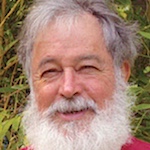
Red Pine ( Bill Porter)
1943 CE –
Exceptional translator, cultural diplomat
Son of a bank robber turned politician who became the wealthy head of the California democratic party, friends with the Kennedys and nominated for president by Eleanor Roosevelt but who later lost everything; Red Pine at an early age saw through the materialism of western culture and left the US for 22 years to study, practice, and translate in the Far East. After studying with John Wu, John Blofeld, and Chiang Kai-Shek’s personal master, Wu Ming, he traveled through Mainland China documenting his adventures with details about Chinese culture and history on over 1100 radio programs for Chinese audiences. His translations sink through the words, find the essence, and bubble the meaning up into beautiful and vivid English.
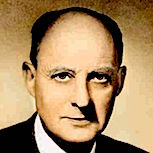
Reinhold Niebuhr
1892 – 1971 CE
Composer of the Alcoholics Anonymous Serenity Prayer, author of a nonfiction book ranked in the top 20 of the twentieth century, "the most influential American theologian of the 20th century,” leading political and cultural commentator for over 30 years; Niebuhr challenged religious conservatives as narrow-minded, religious liberals as naive and taught a middle-way “Christian realism.” Barack Obama’s "favorite philosopher" and a deep influence on Thomas Edison, Jimmy Carter, Martin Luther King Jr., John McCain, and given the Presidential Medal of Freedom by Lyndon Johnson; one of his books was called, "the most important book ever written on U.S. foreign policy.”
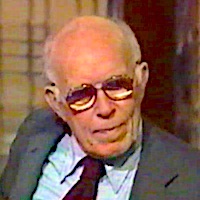
René Dubos
1901 – 1982 CE
Influential scientific environmentalist
Microbiologist, leading humanist and influential environmentalist; Dubos wrote 32 books including a Pulitzer Prize winner. Creator of the famous phrase, "Think Globally, Act Locally," he empowered and entrusted individuals, local, and small organizations making needed changes rather than relying only on large, impersonal, and out-of-touch institutions. He argued that only local, small-scale organizations can clearly see and respond to their "unique physical, climatic, and cultural contexts." He balanced this sentiment, however, with an emphasis on need for communication with a world order conscious of environmental priorities. While not ignoring our immense global challenges, he conveys an optimistic, positive, and realistic approach.
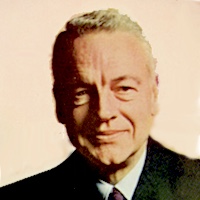
Robert Hutchins (Robert Maynard Hutchins)
1899 – 1977 CE
An educational philosopher whose time has arrived; Robert Maynard Hutchins was University of Chicago president, Yale Law School dean, Editor In Chief of the Great Books of the Western World, and a leading proponent of secular perennialism—nonspecialized and nonvocational
education based on discovering the “sense” rather than relying on just the words, on principles not just facts. Encouraging deeper understanding, prioritizing thinking for ourselves, and attacking superficial focus on entertainment and the narrow “trade school” approach to education; he eliminated varsity football at the University of Chicago and implemented novel educational programs based on the Great Books and Socratic dialogue. In later life he ran the Ford Foundation and channeled huge sums into programs for adult education, to train teachers, and to spread liberal arts. One of these became PBS.
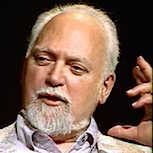
Robert Anton Wilson
1932 – 2007 CE
Agnostic mystic, Discordian saint, electrical engineer, journalist and apostle of doubt; Wilson dedicated his novels, essays, and interviews to undermining mindless belief and conditioned world view in order to expand more openness to new understanding, creativity, and innovation. An early advocate of marijuana and psychedelics, he became friends and collaborator with Tim Leary, Alan Watts, Ram Das, and Allen Ginsberg. Developing a technique he called “guerrilla ontology,” he wrote 35 books most with the intention of creating cognitive dissonance to challenge belief systems and create openness to direct experience. His book The Illuminatus Trilogy remains a cult classic and well worth reading.
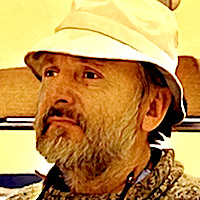
Robert M. Pirsig
1928 – 2017 CE
American philosopher, modern-day Thoreau-on-wheels, 170 IQ precocious child, and high school graduate at only 14 years old; Pirsig experienced a difficult and troubled life. He was expelled from college, had a nervous breakdown, spent time in psychiatric hospitals, was diagnosed with paranoid schizophrenia and was treated with electroshock therapy. His wife divorced him and his 22-year-old son was stabbed and killed. In spite of (or because of) these challenges, he was awarded a Guggenheim Fellowship, given an honorary doctorate degree, and wrote a book called “brilliant beyond belief,” “a cornerstone of the Beat/Hippie literary era," and that was compared to the writings of Dostoevsky, Proust, and Melville. Unseduced by fame, he intentionally led a quite, contemplative life outside the limelight.
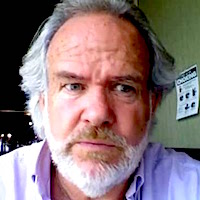
Robert S. De Ropp
1913 – 1987 CE
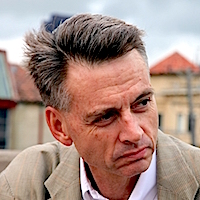
Robert Wright
1957 CE –
Radical centrist, army brat, popular professor, science editor, journalist and prize-winning author; Wright has applied his journalistic skills to translating and interpreting complicated scientific and religious principles. With understanding and insight, his books and articles disentangle the convoluted juxtrapositions interconnecting religion, philosophy, psychology, politics, and science. His decoding of the perspectives of evolutionary psychology and applying them to everyday life offers a valuable key to finding a sane way in these rapidly changing times.
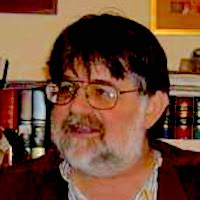
Robin Kornman
1947 – 2007 CE
Scholar, translator, Bodhisattva
Co-director of the first retreat center in the usa that Chögyam Trungpa Rinpoche set up in 1970 (Tail of the Tiger, name later changed by HH Karmpapa XVI to Karmê Chöling), co-founder Nalanda Translation Group, university professor, and one of the world's experts on the Gesar of Ling literature; Kornman began translation work on this famous Tibet oral epic in the 1980's and continued this focus until his untimely death in 2007 (because of asbestos exposure caused cancer when he was young). He devoted his life to helping others by teaching, challenging, and humorous but deeply insightful commentary.
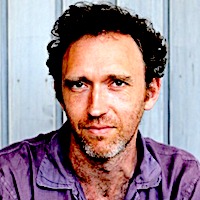
Roman Krznaric
c. 1964
Practical, popular, modern philosopher
Philosopher, gardener, human rights activist, academic, tennis player, and furniture maker; Krznaric grew up in Australia, Hong Kong and the UK going on to help found The School of Life, the world’s first Empathy Museum, and the digital Empathy Library. One of modern European’s most popular philosophers, he works with organizations from prisons to Google to the United Nations and describes paths toward the transformation of society. His transforming influence spreads over educational reforms, ecological campaigns, progressive politics, innovative inventions, and social entrepreneuring.
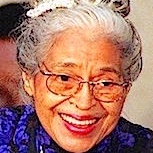
Rosa Parks
1913 – 2005 CE
Symbol of the Civil Rights Movement, an international icon of resistance to racial segregation. and called by the US Congress “the mother of the freedom movement;” Rosa Parks sparked the the Montgomery Bus Boycott and as a result was fired from her job and received death threats for years. She dedicated her life to advancing social issues, donated most of the money from her almost constant speaking engagements, and although given the Presidential Medal of Freedom, the Congressional Gold Medal, numerous awards; she lived a very simple, poor and private life and was even evicted from her apartment in 2002. The subject of many books, films, and songs; her legacy continues to inspire efforts toward equality everywhere.
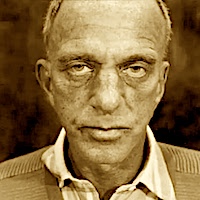
Roy Marcus Cohn
1927 – 1986 CE
Penultimate “fixer,” Trump mentor, and one of the worst human beings who ever lived
Ruthless “fixer,” disbarred lawyer, power-hungry hypocrite called and Donald Trump's personal mentor; Roy Cohn became Senator Joseph McCarthy's chief counsel during the McCarthy hearings and helped him spread lies, hatred, fascism, and white nationalism. He first became famous prosecuting the Julius and Ethel Rosenberg espionage case infamously threatening witnesses to testify against them, encouraging them to lie, illegally pressuring the judge outside the courtroom, and eventually securing an unjust death penalty against them. After a long period of promoting the libel and slander of McCarthyism, he turned to a legal career defending criminals like Mafia bosses Tony Salerno, Carmine Galante, and John Gotti; corrupt politicians like Richard Nixon and Roger Stone; nefarious businessmen like Robert Murdoch and Donald Trump.
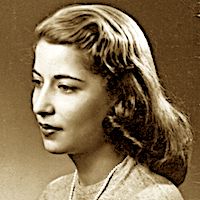
Ruth Bader Ginsburg
1933 – 2020 CE
Fierce and influential voice for justice, equality, and women's rights
Second female Supreme Court Justice, professor, "pop culture icon,” champion of gender equality and women's rights; Ginsburg became a fierce and influential voice on the direction of US law. The first Justice to officiate a same sex-wedding, her work led to ending gender discrimination in many areas and extended the Constitution’s Equal Protection Clause to women. Without neglecting her Supreme Court work, she’s struggled through the death of a husband, heart surgery, colon. and pancreatic cancer. To stay healthy and continue her work, she found a personal trainer, started working out, and at 80 could still do 20 full push-ups. Named one of the world’s 100 Most Powerful Women in 2009, “Women of the Year” in 2012, and one of Time’s “100 most influential people” in 2015; her influence continues.
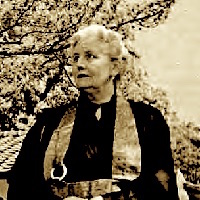
Ruth Fuller Sasaki
1892 – 1967 CE
First foreigner to become a priest in a Japanese Rinzai Zen temple, only woman yet to be a Daitoku-ji temple priest, and pioneering welcomer of Buddhism into the USA; Sasaki was an early student of yoga and Eastern philosophy during the 1920’s. She translated herself and—supervising a team including Gary Snyder—initiated many of the first translations of important Zen texts into English. Student of D. T. Suzuki, mother-in-law to Alan Watts, married to Zen master Sokei-an; she created places for people to practice, provided texts, and helped open the door for most of the early American Zen practitioners.
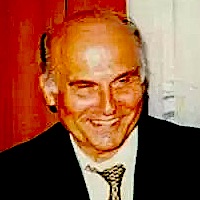
Ryszard Kapuściński
1932 – 2007 CE
“One of the most credible journalists the world has ever seen"
Poet, journalist, photographer, secret service agent, and author; Kapuściński was called ”The master of modern journalism", "Translator of the World,” "The Greatest Reporter in the World", "Herodotus of our times", and "Third World chronicler.” He lived through and reported on 27 revolutions and coups, was jailed 40 times, lost his career-journalism job because of his Polish pro-democracy support, and survived 4 death sentences. “One of the most credible journalists the world has ever seen" and a deep, compassionate thinker; he used innovative literary techniques including “magical journalism” to record his philosophical reflections on decolonization, political corruption, and major world events as well as on their their psychological significance.
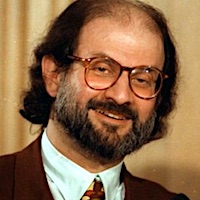
Salman Rushdie
1947 CE –
Fearless antagonist of Islamic fundamentalism
Prolific, award-winning, and fearless writer, Rushdie’s novels combine magical realism with historical fiction and concentrate on the interplays between Western and Eastern civilization. An antagonist of religious extremism and advocate for Islamic reform, his books were banned in many Muslim countries, he was put on an Al-Qaeda hit list, and the spiritual leader of Iran—Ayatollah Khomeini—issued a fatwā ordering his execution. When knighted on the English Queen’s birthday in 2007, mass demonstrations against him broke out in Malaysia and Pakistan while many Muslims campaigned publicly for his death. He supported Barack Obama’s election and the UK vote to stay in the EU, criticizes the Republican Party, champions ways to end racial discrimination, and actively supports feminism.
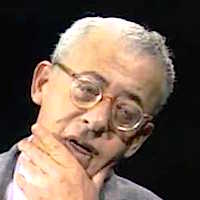
Saul Alinsky
1909 – 1972 CE
Saul Alinsky (1909 – 1972)
“Founder of modern community organizing,” “creator of a backyard revolution in cities across America,” champion of the poor and powerless; Alinsky became a strong influence on Cesar Chavez, Hillary Clinton, Barack Obama and Dolores Huerta but his methods and strategies were also studied and used by Tea Party organizers. Dedicating his own work to improving the living conditions in poor communities, he was active in the labor movement, poverty alleviation across the USA, in black ghettos, and California barrios. Reviled and banned by establishment politicians but admired and imitated by counterculture-era organizers; he was described by William F. Buckley Jr. as an “organizational genius,” by Adlai Stevenson as “a most faithfully reflect[ion] our ideals of brotherhood, tolerance, charity and dignity of the individual,” and according to Time magazine he “altered democracy.”

Seungsahn 숭산행원대선사 (Soen Sa Nim)
1927 – 2004 CE
Laundromat repairman, 78th Korean Zen Patriarch, ”Great Lineage Master,” Korean army captain, founder of the international Kwan Um School of Zen; Seungsahn founded many Zen centers in the USA, in Israel, and—with Mikhail Gorbachev’s invitation—one also in the Soviet Union. A member of the underground resistance during the Japanese occupation of Japan, he was caught, imprisoned and almost executed. This led to a 100 day retreat living on a diet of pine needles and rain water and his transition to dharma teaching. Teaching in the West without attachment to a particular form or school, he taught the appreciation of “don’t-know mind” and improvised different practices for different students. this improvisation may have gone a little too far though when—still posing as a celibate monk—he had many affairs with female students. When discovered, he did repentance ceremonies making it seem unlikely that these actions were just more teachings.
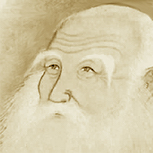
Shan Dao 山道
1933 CE –
Translator, entrepreneur, farmer, engineer, inventor, house-holder, and single father; Shan Dao grew up in a remote but culturally diverse village. Alienated from the materialism and militarism of his environment, he was drawn toward a spiritual path and at 4 years old began experiencing at first a mystical Christianity and later one more in harmony with Doestoevesky and Teilhard de Chardin. He practiced at first Rinzai and later Soto Zen, Tibetan Vajrayana Buddhism, and a Rimé Shambhala tradition which led to an immersion in the Tao Te Ching and the deep wisdom streams hidden but flowing in our many different religious cultures.
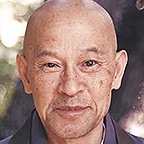
Shunryu Suzuki Roshi
1904 – 1971 CE
In completely in harmony with Lao Tzu, Suzuki Roshi’s teachings, possibly more than almost anyone else – and without saying so – brought a clear understanding of the Tao Te Ching into our modern world. In Japan, he had to deal with the rigidity and aggressiveness of his war time country. He came to San Francisco in 1959 and flourished during the height of the counter-culture influencing poets, artists, religious leaders (like Alan Watts and Chogyam Trungpa), and founded the first Zen Buddhist monastery in the West.
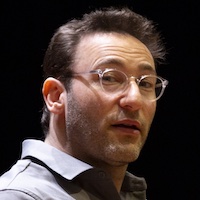
Simon Sinek
1973 CE –
Author of 5 books, motivational speaker, and highly respected business consultant; one of his TED talks became one of YouTube's all time most popular and his books have won best-selling status on both Wall Street Journal and The New York Times lists. Highly critical of the "trickle down" economic theory, he promotes instead the creation of safe, supporting, fulfilling, and inspiring work environments. His childhood in South Africa, London and Hong Kong gave him a more realistic, global perspective that easily goes far beyond the more narrow and nationalistic understandings of most usa-based business consultants.
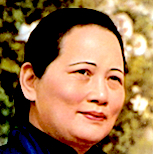
Soong Ching-ling (Madame Sun Yat-sen)
1893 – 1981 CE
The "mother of modern China,” wife of Sun Yat-sen, a Vice President of China and Honorary President of the People's Republic of China; Soong Ching-ling makes up an important part of one of history’s most famous and influential sets of sisters. Daughters of an American-educated Methodist minister/banker, one sister - a power in herself - married the leader of the Kuomintang, Chiang Kai-shek; another married the Chinese finance minister and because the richest woman in China. Soong Ching-ling stayed in mainland China and held important government positions but was persecuted during the Cultural Revolution.
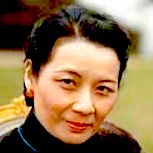
Soong Mei-ling 宋美龄 (Madame Chiang Kai-shek)
1897 – 2003 CE
Called by Life Magazine the "most powerful woman in the world,” by Ernest Hemingway the “empress” of China, and compared by Clare Boothe Luce to Florence Nightingale and Joan of Arc; Soong Mei-ling lived during 3 different centuries, was the Republic of China’s first First Lady, Sun Yat-sen’s sister-in-law, wife and political partner to Chiang Kai-shek. She worked hard fighting against the Japanese invasion of China, toured the USA trying to get support, and started extensive welfare projects and schools for orphans, and worked on many attempts to heal China’s political divisions.
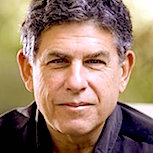
Stephen Mitchell
1943 CE –
Translator, poet, scholar; Mitchell was “educated” at the Sorbonne and Yale, “de-educated” with intensive Zen practice. He’s written fiction, non-fiction, poetry, children’s books and has translated more than 23 books including the Tao Te Ching, Gilgamesh, The Iliad and The Odyssey, the Bhagavad Gita, and the Poetry of Rainer Maria Rilke called “the most beautiful group of poetic translations the 20th century has produced.” Married to Byron Katie, founder of The Work, he coauthored two of her bestselling books: Loving What Is and A Thousand Names for Joy.
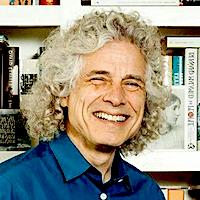
Steven Pinker
1954 CE –
Humanistic scientist, insightful cultural commentaror
Harvard professor, linguist, cognitive/evolutionary psychologist, humanist, and insightful cultural commentator; Pinker is considered “one of the world's most influential intellectuals.” Translating the significance of new scientific and psychological discoveries into common language, his many books help make these contemporary insights useful in everyday life. Emphasizing the psychology of cooperation and communication, he became a Two-time finalist for the Pulitzer Prize and Humanist of the Year in 2006. His current book, Enlightenment Now helps transmute pessimistic, nihilistic, and negative views into an energized and inspired optimism in relation to both our social and individual states of mind.
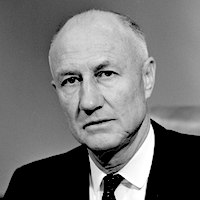
Strom (James) Thurman
1902 – 2003 CE
White Supremacist Hero
Thurman dedicated most of his 48 years as a South Carolina senator fighting against civil rights and racial equality. In 1946 after South Carolina police blinded Black World War II veteran, Isaac Woodard, President Truman proposed legislation to desegregate federal contracting but Thurman led the Southern Racist attempt to stop this by forming the “Dixiecrat” party dedicated to racial segregation.
Before the first civil rights legislations was signed into law by Dwight Eisenhower (The Civil Rights Act of 1957), Thurmond inflicted the longest filibuster by a senator on the the senate floor by speaking 24 hours and 18 minutes. He voted against the 1964 Civil Rights Act, the 1965 Voting Rights Act; and, when Goldwater ran for president, Thurman switched parties becoming Republican and leading the five Deep South states to do the same. In 1968, Richard Nixon made a deal with Thurman promising to not let the federal government enforce Black rights in exchange for Thurman political help which he enthusiastically gave.
Hypocritically, Thurman—after secretly having a daughter (Carrie "Tunch" Butler) with a 15-year-old Black girl—continued his career focusing on cementing white supremacist policies into the fundamentalist Republican strategy. Infamous for regular acts of sexual harassment, he went a little too far when in 1994 at age 91 he attempted fondling the breast of fellow Senator Patty Murray who he hadn't recognized.
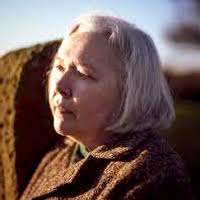
Susanna Clarke
1959 CE –
Susanna grew up in a family with a Methodist minister father who frequently had to relocate. This probably encouraged her more outsider, individualistic approach to writing. She worked for more than 10 years on her first novel, Jonathan Strange & Mr Norrell before it was published (after two major rejections) in 2004 winning the Hugo, World Fantasy, and many other Awars. To support her literary efforts, she worked teaching English as a second language, editing cookbooks for Simon & Schuster, and helping Quarto and Gordon Fraser with publishing projects. Her inward journey during this time was obviously much more interesting than how things looked from the outside.
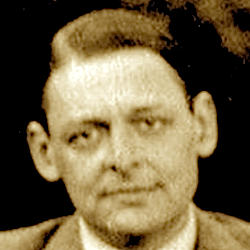
T. S. Eliot
1888 – 1965 CE
T.S. Eliot, Thomas Stearns Eliot (1888-1965)
Literary and social critic, "one of the twentieth century's major poets,” publisher and playwright, Nobel Prize winner and “the poet of the modern symbolist-Metaphysical tradition;” T.S. Eliot wrote some of the best known English poems. Reversing the more common trend, he was more respected during his lifetime, less so after but still almost universally acknowledged as a pioneering and major influence on modern poetry. He emphasized insight and poetry arising from the unconscious mind. Often accused of anti-Semitism, he described himself as a "classicist in literature, royalist in politics, and anglo-catholic in religion".
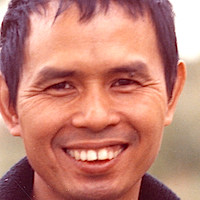
Thích Nhất Hạnh tʰǐk ɲɜ̌t hɐ̂ʔɲ
1926 CE –
Peace activist, Zen monk, Princeton and Columbia University lecturer in the 1960s, author of more than 100 books, influence on Martin Luther King, Jr; Thích Nhất Hạnh blended teachings from many different Buddhist traditions with Western psychology, mindfulness, and social engagement. As a young monk in Viet Nam, he worked on poverty alleviation and development projects in rural Viet Nam rebuilding villages, setting up schools, and establishing health care clinics. Following in the tradition of a 13th century Vietnamese emperor-turned-Buddhist monk, he coined, popularized, and practiced "Engaged Buddhism" promoting nonviolent solutions to problems, vegetarianism, and peace.
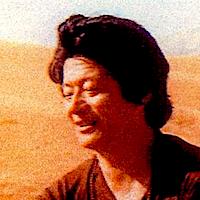
Thinley Norbu གདུང་སྲས་ཕྲིན་ལས་ནོར་བུ (Kyabjé Dungse)
1931 – 2011 CE
Oldest son of Nyingma head, Dudjom Rinpoche; Dzongsar Jamyang Khyentse Rinpoche's father, and Longchenpa/ Longchen Rabjam lineage manifestation; Thinly Norbu Rinpoche became one of the major teachers of ancient Tibetan wisdom to the modern, Western world. He first came to the usa in 1976; but, unlike most famous spiritual teachers of the time, he kept a lower profile, shunned publicity, and maintained a quiet life practicing and writing books.
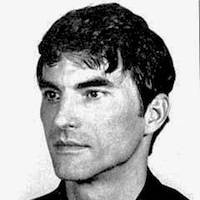
Thomas Cleary
1949 CE –
Translator of over 80 books from 8 different languages, Cleary mainly focused on translating Buddhist, Taoist, Confucian and Muslim classics never translated into English. Motivated by his own spiritual path and interest in Eastern wisdom and although credential in the scholastic world with a PhD from Harvard and a JD from Berkeley, he shunned the security of academic and institutional roles staying independent and shunning academic cliques, organized education, sectarian allegiance, and anything with shades of a cult. More recently his interests involve Comparative Constitutional Law and he has translated Gallic law texts written in Old Irish with the intention to help the American legal system evolve past its difficulties adapting to our ever-changing new technological world.
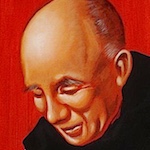
Thomas Merton
1915 – 1968 CE
Mystic, Trappist monk, and friend of Thich Nhat Hanh, Chogyam Trungpa, the Dalai Lama, and D.T. Suzuki; Merton championed social justice issues, the civil rights movement, and ending the nuclear arms race. Writing more than 70 books, he continually studied and practiced not only Christian mysticism but also Buddhism, Taoism, Hinduism, Jainism, Sufism, and Native American spirituality. In 2015 Pope Francis called him, “a thinker who challenged the certitudes of his time and opened new horizons… a man of dialogue, a promoter of peace between peoples and religions.”
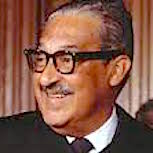
Thurgood Marshall
1908 – 1993 CE
Thurgood Marshall (1908 – 1993) Grandson of a slave, refused admission to a law school because he was black, and first African-American Supreme Court Justice; Marshall was instrumental in the Brown v. Board case that desegregated public schools, helped the United Nations draft the constitutions of Ghana and Tanzania, and - before he became Justice - won more Supreme Court cases than anyone in history. He ruled in favor of Roe v. Wade abortion rights, worked to eliminate the death penalty, and probably more than Malcolm X and Martin Luther King made the Civil Rights Movement successful. He remained a tireless and highly effective voice for human rights, individual freedom, the poor, downtrodden and for all people
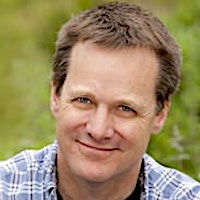
Tim Riley
1960 CE –
Classical pianist, digital journalist, and music critic; Riley writes for NPR, New York Times, Washington post, and many online news sites. He received a Best Book Review Award and a Best Nonfiction Award for his biography of John Lenno
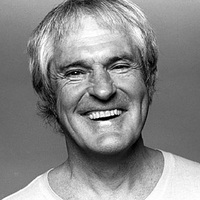
Timothy Leary
1920 – 1996 CE
Pioneering psychonaut, performing philosopher, and counter-cultural hero
Harvard professor, "performing philosopher,” counter-culture hero, consciousness explorer, and famous psychonaut; Timothy Leary personified the rebel archetype from an early age. He was court-martialed from West Point for refusing to inform on fellow cadets, expelled from the University of Alabama for spending a night in the female dorm, fired from his professorship at Harvard for allegedly missing classes, and during the 60’s and 70’s was imprisoned in 36 different prisons worldwide. President Richard Nixon described him as "the most dangerous man in America.” In 1960, he teamed up with fellow Harvard professor, Richard Alpert (Ram Dass) to launch the first scientific psilocybin research project; and later, with Allen Ginsberg began a campaign to introduce psychedelics and the discovery of higher levels of consciousness to the broader culture. He pioneered research into the benefits of psychedelics in curing alcoholism, inducing religious experiences, and reforming criminals (dropping recidivism rates rates from 60 to just 20%). He won a supreme court marijuana case and—with the support of John Lennon and Yoko Ono—ran for governor of California (Come Together was a Lennon-written campaign song). An early influence on Game Theory, Transactional Analysis, Aldous Huxley, Robert Anton Wilson, and Huston Smith; Leary became a major influence on modern psychology but also created a back-lash that effectively ended psychedelic research until its revival in modern times.
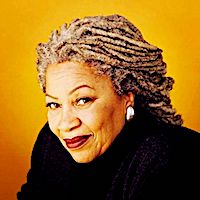
Toni Morrison (Chloe Ardelia Wofford)
1931 – 2019 CE
Story-telling voice of American wisdom
Novelist, professor, and essayist; Toni Morrison became Random House's first black woman editor. She consistently and insightfully addressed issues like race, feminism, white supremacy, and politics without fixating on extremes and while always keeping on open view. She won the Nobel Prize in Literature, the Pulitzer, the National Book Critics Circle Award, the American Book Award, and she was chosen for the Jefferson Lecture—the U.S. government's highest honor for accomplishment in the humanities. President Barack Obama presented her with the Presidential Medal of Freedom

Toni Packer
1927 – 2013 CE
A Zen teacher minus the 'Zen' and minus the 'teacher.’
Toni Packer (1927 – 2013)
Dropped-out successor to famous Zen teacher Phillip Kapleau, developer of the "meditative inquiry" practice, and founder of the Springwater Center; Toni Packer grew up in Nazi Germany needing to hide her Jewish heritage while becoming increasingly skeptical of authority. Following in the Krishnamurti lineage of spiritual anti-authoritarianism, she stopped calling herself a “Buddhist” and became "...a Zen teacher minus the 'Zen' and minus the 'teacher.’ ” Exiled from the Rochester Zen Center, she taught finding the essence, the sense, the true meaning hidden by dogma, rituals, organized religions and cultural traditions.
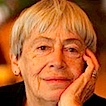
Ursula Le Guin
1929 – 2018 CE
At an early age, Le Guin saw her father making notes in an old book. In this way she discovered Lao Tzu who became a lifelong teacher and companion. Her father, a famous cultural anthropologist also exposed her to the native American shamanistic traditions. This led to a prolific and influential literary career with works translated into 31 languages and winning 21 Locus, 6 Nebula, 5 Hugo, a Newbery and World Fantasy, many “year's best” and other awards. Not just entertaining, these books challenged and positively shaped modern views on race, gender, society and the environment.
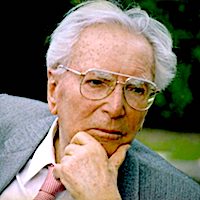
Viktor Frankl
1905 – 1997 CE
Brave and insightful concentration camp survivor
A survivor of multiple Nazi concentration camps that claimed the lives of his mother, wife, and brother; Frankl developed a psychological approach—logotherapy—based on vivid personal experiences rather than hypothetical theories. He watched how people’s ability to survive in the most horrendous situations correlated with the degree of meaningfulness they could discover as well as seeing how this mirrored his own ability to live through and survive this almost unimaginable suffering. Before his concentration camp experiences he had already focused his work on depression and suicide which successfully prevented even one Viennese student suicide in 1931. After the war, he became an important inspiration for the humanistic psychology movement, wrote 39 books translated into 49 languages, received 29 honorary Ph.D. degrees and taught in locations all over the world. He convincingly debunked the still prevalent deception of finding happiness in relaxation, vacations, and retirement; and pointed instead toward the struggles of meeting challenges, working toward goals, and—most importantly—projects that make the world a better place.
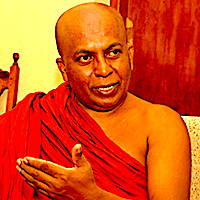
Walpola Rahula Thero
1907 – 1997 CE
“Supreme Master of Buddhist Scriptures”
History professor, Ph.D. in philosophy, active socialist, and first Buddhist monk to hold a chair in a western university; Walpola both brought a more clear conception of Buddhism to the Western world and practical kind of Western politics to Sri Lanka. Given the title, “Supreme Master of Buddhist Scriptures,” he wrote extensively and taught at many universities including UCLA, Swarthmore College, and Western University. He encouraged monks to not only study and practice Buddhism but also to get involved in the political process as a way to translate meditative awareness into a practical influence on society and culture.
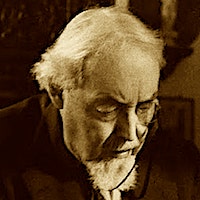
Wei Wu Wei "O.O.O.", Terence James Stannus Gray
1895 – 1986 CE
Skillful translator from Taoist insight into modern, English language
Wei Wu Wei's cousin founded the UK Royal Ballet while he created the Cambridge Festival Theater, produced more than 100 plays, wrote books on ancient Egyptian history and culture, raised his family's racehorses, won 11 major races, and married a Georgian princess and a Russian noblewoman. His wealth, success, and fame, however, left him empty and without meaning. He took on the pseudonym, Wei Wei Wei, and wrote 8 books and numerous articles that brought insight and ancient wisdom into modern language. Befriending Lama Anagarika Govinda, Dr. Hubert Benoit, John Blofeld, and Dr. D. T. Suzuki; he helped translate and bring the insights of Taoist and Buddhist understanding into modern, cultural influence.
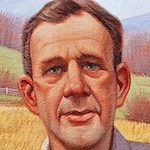
Wendell Berry
1934 CE –
Defender of small-farm values and sustainable agriculture, champion of appropriate technology and environmental causes, cultural conscience and effective critic of industrial farming, environmental degradation, and materialistic lifestyle; Berry’s prolific writing beginning with articles in the early 70’s for Rodale Press, Organic Gardening, and The New Farm and continuing through more than 50 books has inspired new generations willing to put place over ambition, sustainability over wealth, family and friends over fame, making the world a better place over power and prestige.
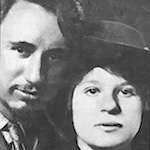
Will (and Ariel) Durant
1885 – 1981 CE
Much more than ivory-tower, intellectual academics, Will and Ariel Durant worked to put the lessons of history into practical lessons useful for average people. He worked for women’s right to vote, equal wages, better working conditions for American labor, and wrote a “Declaration of Interdependence,” that was read into the Congressional Record and started a movement against racial intolerance 10 years before the Civil Rights Movement. Writing “the most successful historiographical series in history,” and awarded a Pulitzer Prize for literature as well as the Presidential Medal of Freedom, he critiqued the West’s “fatal error of perspective:” Eurocentrism, intolerance and provincialism.

Will Durant
1885 – 1981 CE
Philosophy apostle and popularizer of history's lessons
Apostle for philosophy, Catholic priest vocation drop-out, socialist reporter, librarian, professor who quit so he could marry his much younger 15 year-old student who became his 68-year married wife; Durant became not just an ivory-tower intellectual and academic but someone who put the lessons of history into practical lessons useful for average people. He worked for women’s right to vote, equal wages, better working conditions for American labor, and wrote a "Declaration of Interdependence,” that was read into the Congressional Record and started a movement against racial intolerance 10 years before the Civil Rights Movement. Writing “the most successful historiographical series in history,” and awarded a Pulitzer Prize for literature as well as the Presidential Medal of Freedom, he critiqued the West’s “fatal error of perspective:” Eurocentrism, intolerance and provincialism.

William Hardy McNeill
1917 – 2016 CE
Historian
Historian, author, and proponent of the theory that cultural exchanges has been and continues to be the main driving force of human history. His book, The Rise of the West was listed as one of the 100 Best Nonfiction Books of the 20th century
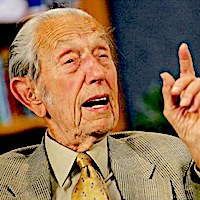
William Montgomery Watt
1909 – 2006 CE
"The Last Orientalist"
One of the most respected non-Muslim commentators on Islam, historian, Anglican priest and professor; Watt wrote classic biographies about Muhammad. He thought Muhammad was like an Old Testament prophet and emphasized his efforts to achieve more social justice. His books are criticized by Muslims who have a hard time appreciating Christianity and by Christians who have trouble appreciating Isla
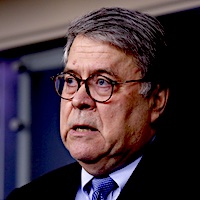
William Pelham Barr
1950 CE –
One of the most corrupt of modern politicians
One of the most corrupt and evil figures in the modern political world; Barr became the premier "fixer" for Reagan during the Iran-Contra scandal. He fought against LGBT and abortions rights as well as church vs. state separation; promoted religious nationalism, stricter death penalty laws, and the elevation of Catholicism in public education. As Attorney General during the Bush Administration, he supported strong "law and order" policies and even the abolishment of paroles. When Caspar Weinberger planned to testify that George H. W. Bush participated in the Iran-Contra scandal, Barr arranged for Bush to pardon him (and several other officials) as a way of preventing this testimony causing a second scandal known as Iraqgate. This led Independent Counsel Lawrence Walsh to call it "The Iran-contra cover-up" and NY Times reporter William Safire to nickname him "Coverup-General Barr". Barr's corrupting political and social influence spread after Donald Trump appointed him attorney general in 2019.
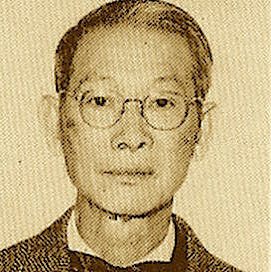
Wing-tsit Chan 陳榮捷
1901 – 1994 CE
Chinese academic, scholar and professor; Chan exemplifies the traditional, “objective” scholastic and led his life strictly in that mold getting a Ph.D. from Harvard and teaching in colleges the rest of his life while translating and writing hundreds of barely-read scholarly books and papers. An exception was his 1963 book, A Source Book in Chinese Philosophy that became an influential but dry source for the new academic field of Asian studies. Though probably not that full of understanding in itself, it exposed Westerners to quotations, names, and ideas with the potential to open doors of insight and wisdom.
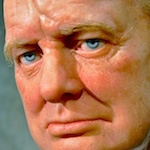
Winston Churchill
1874 – 1965 CE
At the top of world politics for 50 years and one of the most influential leaders in all history, Churchill was also an accomplished artist, an author who won the Nobel Prize in Literature, and amateur bricklayer who bred butterflies. A Cassandra of his time, he very early and almost alone warned of Hitler and Nazi Germany, Stalin and the Soviet threat, and Gandhi’s approach to Indian Independence leading to the Islamic consequences we’re suffering today. Overcoming a serious speech impediment, his radio broadcasts and communications held Britain together when they were standing almost alone against Hitler, helped bring vital US support, and win WW II.
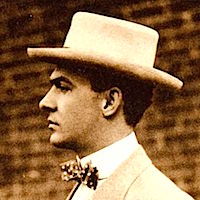
Witter Bynner (Emanuel Morgan)
1881 – 1968 CE
Translator, poet, and scholar; Bynner traveled and lived in China, intensely studied Chinese culture, and worked for 11 years translating T'ang Dynasty poems. A student of George Santayana at Harvard, he was a conscientious objector during World War I, and championed the women’s suffrage movement. Writing more than 39 books himself, he also actively supported poets and artists becoming friends with D.H. Lawrence, Georgia O'Keeffe, Carl Sandburg, Ansel Adams, Willa Cather, Igor Stravinsky, Robert Frost, W. H. Auden, and Aldous Huxley. Sponsoring Kahlil Gibran, he helped him publish The Prophet.
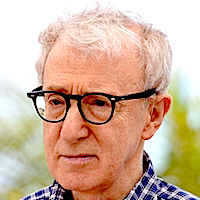
Woody Allen
1935 CE –
Woody Allen, Allan Stewart Konigsberg (1935 - )
Claustrophobic and agoraphobic “militant Freudian atheist,” stand-up comedian ranked third greatest of all time, musician, comedy writer, philosopher, filmmaker with 40+ films to his credit, playwright, and introspective social commentator; Woody Allen has maintained cultural relevance and survived the media spotlight for over 60 years winning 4 Academy Awards, 9 British Film Awards, and a motion picture voted highest on the Writers Guildlist of the "101 Funniest Screenplays." Known as an insecure, neurotic and intellectual nerd; he insists that those qualities are just another act and his real personality is quite different. Though controversial in many ways, he came up with some great quotes.
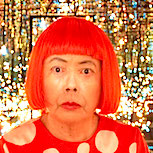
Yayoi Kusama 草間 彌生
1929 CE –
Yayoi Kusama 草間 彌生 (1929 - )
One of the Top 10 Living Artists, 2014’s most popular artist of the year, precursor and inspiration to Andy Warhol and the pop art movement, film writer/start, published novelist and poet named the most popular living artist; almost 90-year-old Yayoi Kusama set a record for a female artist when one of her works sold at Christie’s in New York for $5.1 million. During the counterculture’s 1960s, she organized a series of events that included naked, brightly painted withpolka dots participants. One of the world’s most important voices for the avant-garde, she has lived in a Japanese mental institution since 1973 creating hallucination-inspired “infinity nets” while organizing some of the world’s most popular art exhibitions. After creating art every day for over 70 years, she says she’s feeling “as creative as ever,” that “my mind is full of paintings,” and “I, Kusama, am the modern Alice in Wonderland.”
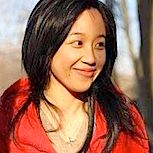
Yi-Ping Ong
1978 CE –
Yi-Ping Ong (c. 1978 - )
Johns Hopkins Assistant Professor, moral and political philosopher, author, human rights activist, and NGO volunteer director; Yi-Ping Ong helped republish the Charles Muller’s translation of the Tao Te Ching and added insightful notes on the chapters, the historical context, and the influence on both Chinese and world culture. A short story she wrote was chosen as one of the 100 Distinguished Stories of 2003 and her Ph.D. dissertation received a major Harvard University award. Although an academic who attended Columbia, Oxford, and Harvard Universities and is now a university professor; her groundedness in the simplicity of Lao Tzu’s vision seems to maintain an allegiance to the sense over the words, reality over ambition, and wu wei over dualistic gaining ideas.
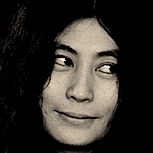
Yoko Ono 小野 洋子 (“Ocean Child”)
1933 CE –
The daughter of one of Japan’s richest banking clans in a long lineage of samurai warrior scholars; Yoko One fell from attending exclusive schools in New York and Japan to begging for food with all the family possessions in a wheelbarrow. A true, faithful life-artist, she collaborated with John Lennon’s public protests against the Viet Nam war, co-wrote ”Give Peace a Chance” inspired many famous songs, and was the only woman to sing a lead vocal on a Beatles’ recording. Continuing her life as “the world's most famous unknown artist,” she’s extended John Lennon’s legacy of political and social activism, philanthropy, and influence on world culture.
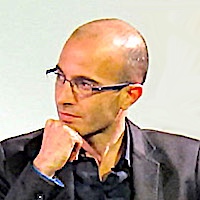
Yuval Harari יובל נח הררי
1976 CE –
Israeli historian, professor, and philosopher
Harari lives with his husband in a small, cooperative community near Jerusalem where he teaches, and writes thoughtful, challenging books. His best-seller, Sapiens—already translated into 45 different languages—examines our history going all the way back to the Cognitive Revolution 70,000 years ago and describes an unconventional but hard-to-dismiss view of progress, technology, free will, and the future. A strong advocate for animal rights and close student of S. N. Goenka, he practices and teaches Vipassana meditation as well as using it as a research tool for developing his understanding of history, evolution, and the nature of human cultur
Quotes (1 Quotes)

“Both generations X and Y grew up to believe they could get whatever they want... An overlooked and forgotten generation, Gen Xers didn't really rebel against anything or stand for much in their youth.”
Comments: Click to comment
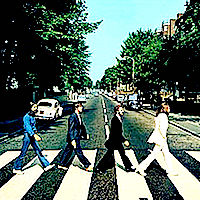
Comments (0)